






In a dynamic global marketplace, perspective is critical to success. Baird offers industry-leading investment research on over 750 stocks and across 40 industry verticals. We also provide access to award-winning macroeconomic and government policy analysis. All to ensure you have the insights you need to make informed decisions.










4 Leading Edge
4 NOW BY THE NUMBERS
5 BIZ LUNCH – FITZY’S CAFE
6 JUMP START - LOTZA
7 PUBLIC RECORD BIZ TRACKER
8 WISCONSIN 275 – Sheldon Lubar
9 FRESH DIGS –Annex Wealth Management
11 WHO’S ON THE BOARD? –Enerpac Tool Group BIZ POLL
12 Biz News
24 M&A: Big Deals


Coverage includes a recap of the largest mergers and acquisitions deals in southeastern Wisconsin during the past year, a report on how buyers and sellers can get a deal done in the current economic environment, and a preview of BizTimes Media’s annual M&A Forum
12 SHOP TALK – Training Within Industry
14 ThriveOn King project nearing completion
16 Real Estate
58 Meet the Notable Commercial Banking Leaders
64 Strategies
64 M&A - Mike Malatesta
65 TECHNOLOGY - Nicole Schmidt
66 MANAGEMENT - Susan Wehrley
67 TIP SHEET
69 Biz Connections
69 PAY IT FORWARD – Jim Wozniak, RBC Wealth Management
32 Workforce and Professional Development


70 GLANCE AT YESTERYEAR COMMENTARY
Coverage includes a report about how upskilling programs are attracting business and tech professionals as employers seek job candidates with AI and communication skills; and a look at recent efforts to strengthen the hospitality talent pipeline in Milwaukee.
71 5 MINUTES WITH…Gregory León, Amilinda chef and owner


Enerpac Tool Group, a global manufacturer currently based in Menomonee Falls, is planning to move its corporate headquarters to downtown Milwaukee.
The company will occupy 56,000 square feet of office space on the fourth floor of the ASQ Center building at 648 N. Plank-
inton Ave. As part of the deal, the building will be renamed the Enerpac Center.
About 130 employees will be making the move to Enerpac’s downtown Milwaukee headquarters, according to a company spokesperson. The company plans to make the move in late 2024 or

early 2025, after the buildout of its space is complete.
“We are incredibly excited about this move, as the new space will better accommodate our local workforce and enable Enerpac to better retain and attract top local talent,” said Paul Sternlieb, president and chief executive officer of Enerpac, in a press release. “Our new global headquarters will offer a dynamic and inspiring workplace to spur strong collaboration and drive innovation.”
Founded in 1910, Enerpac is a manufacturer of industrial tools, producing more than 50,000 products, including cylinders/jacks, pumps, bolting tools, presses, pullers and heavy lifting technology. The company had nearly $600 million in net sales and $53.6 million in net earnings in its 2023 fiscal year.
Enerpac employs about 2,100 people globally, with 28 facilities in 22 countries, according to its website. Approximately 130 of the company’s employees are based in the greater Milwaukee area and work in company management, engineering, finance, information technology, human resources and other roles supporting its global industrial tools and services business.
Enerpac’s headquarters is currently located in an 81,500-squarefoot office building at N86 W12500 Westbrook Crossing in
Menomonee Falls. That building was built by Wauwatosa-based Irgens Partners in 2011 for Enerpac, then called Actuant Corp. Irgens, which was also involved in the redevelopment of the ASQ Center, sold the Menomonee Falls Actuant building in 2014. Actuant rebranded as Enerpac in 2019.
Enerpac joins a growing number of companies that have moved to or added office locations in or near downtown Milwaukee in recent years, including Fiserv, Milwaukee Tool, Rite-Hite, Twin Disc, Regal Rexnord and Church Mutual.
Earlier this year, Charlotte, North Carolina-based Allspring Global Investments announced that it will move 300 employees from Menomonee Falls to the Historic Third Ward, just south of downtown Milwaukee.
Also, Northwestern Mutual is in the middle of a 540,000-squarefoot, $500 million renovation of one of its existing downtown office buildings and will close its Franklin campus, moving those employees downtown.
“Milwaukee continues to be an attractive place for growing companies with our amenities, our activities, and our concentration of vibrant businesses,” Milwaukee Mayor Cavalier Johnson said in a news release. “My administration looks forward to working with all companies looking to relocate here.”



















ADDRESS:
424 E. Silver Spring Drive, Whitefish Bay
WEBSITE:
fitzyscafe.com
CUISINE:
Bistro-style cafe
CHEF:
Kay Dieterman
MOOD:
Modernized luncheonette with a warm, friendly atmosphere
PRICING: $11-19
Modern taste meets local tradition at the new Fitzy’s Cafe on metro Milwaukee’s North Shore.
The craft coffee bar and bistro-style eatery opened late last year within the historic Fitzgerald Pharmacy, featuring a chef-curated, all-day menu of made-to-order salads, sandwiches and lighter fare made with locally sourced and organic ingredients.
Fitzy’s – named after the endearment given to the original pharmacy, which closed in 2019 after 65 years in business and was revived by new ownership shortly thereafter – leans into the nostalgia of a mid-century drugstore luncheonette while appealing to the ever-evolving expectations of modern-day consumers, whether they’re shopping for the latest health and wellness product or looking for a place to meet over lunch.
“We really felt the responsibility to bring this back to the community. Not just bring it back, but bring it back better than it’s ever been,” said Tamir Kaloti, president of Milwaukee-based Hayat Pharmacy, which purchased and reopened Fitzgerald Pharmacy in fall 2022.

3
1 2 3

Fitzy’s is set in a bright, airy space where diners can sit at the counter or at a table – or take their order to go.
LOCATION:
Menomonee Falls
FOUNDERS:
Laura Markz
FOUNDED:
2023
SERVICE:
Beverage manufacturer
WEBSITE:
getlotza.com
EMPLOYEES:
1
GOAL:
Achieve $400 million in sales within five years
EXPERIENCE:
Digital marketing and consulting

AS THE POPULARITY of non-alcoholic and low-ABV beverage options continues to rise, Menomonee Falls-based startup Lotza is looking to carve out its own space within the alternative beverage market.
Company founder Laura Markz has created what she believes to be the world’s first “goodfor-you” drink mixer that not only protects the body against the negative effects of alcohol, but also provides additional health benefits.
Designed to be mixed as a cocktail or consumed on its own as a mocktail, Lotza contains mood-boosting adaptogens and plant-based nutrients to support liver health and next-day recovery. The carbonated beverage is currently




available in three flavors: lemon hibiscus, watermelon cucumber and wild berry mint.
“The whole goal as a business for Lotza, my ‘why’ behind everything, is to help protect people from the damaging effects of alcohol,” said Markz, who launched the startup in February 2023.
Markz is a Marquette University graduate who began her professional journey at advertising agency Laughlin Constable. She quickly climbed the ladder to become vice president of digital strategy but ended up leaving the corporate world after suffering from a severe medical emergency during childbirth. After a stint as a consultant and later working for a colleague’s air purification business, which ended up shutting down, Markz made the decision to start her own company.
The idea of creating a beverage that can be enjoyed in social settings by drinkers of all preferences had always been a half-formed concept in the back of Markz’s head.
“Being with your friends and having a beverage that can be enjoyed equally by people who consume alcohol and people who don’t was really important to me,” she said.
Lotza has a two-pronged approach to how it can help protect consumers from the damaging effects of alcohol. Working with a medical advisory team, Markz perfected a formula that includes vitamins, antioxidants and adaptogens, such as holy basil and rhodiola, which have been shown to naturally lower stress levels and increase energy.
“The adaptogens can either be a supplement to alcohol or a replacement to alcohol, to give you that fun feeling without actually being intoxicated,” said Markz.
The second piece of Lotza’s health-centric approach is DHM, a plant-derived supplement that can help counteract the effects of alcohol. It also has antioxidant and anti-inflammatory properties.
“A lot of the big brands think if you consume alcohol, you must not care about your health,” said Markz. “I think that’s a total farce.”
The goal is to achieve $400 million in sales within the first five years of business and Markz has laid out an aggressive growth strategy to reach that milestone. Lotza was recently named a semifinalist in the annual Governor’s Business Plan Contest.
The latest area economic data.
A total of 439,354 passengers used Milwaukee Mitchell International Airport in January, a 5.5% increase year-over-year.




Wisconsin’s seasonally adjusted unemployment rate is 3.2%.
Home sales in the four-county metro Milwaukee area rose 4.3%
in January, year-over-year, to 848, but the average home sale price fell 2.2% to $328,745.

Statewide, single-family homebuilding activity
rose 2.9% in 2023 with a total of 11,657 permits pulled.
Wisconsin businesses exported $29.9 billion in goods in 2023, a 2.6% increase
from 2022. The state imported $39.3 billion in goods in 2023, a decrease of 4.4% from the prior year.
On April 2, Milwaukee Public Schools will ask voters to approve a referendum allowing the district to exceed revenue limits by $252 million on a recurring basis.
MPS is not alone in Wisconsin in asking voters to support more funding. According to the state Department of Public Instruction, between the February and April elections there are:
• 21 other recurring revenue referendums totaling more than $85 million. If approved, districts are able to increase the base of their tax levy moving forward.
• 42 non-recurring revenue referendums totaling $331 million. If approved, districts can increase their tax levy for specified years.
• 30 debt issuance referendums totaling $800 million. These referendums often relate to specific building expansion or renovation projects.
In placing the question on the ballot, MPS pointed to the lack of inflation adjustments in revenue limits. The district estimated that if limits kept pace with inflation, MPS would have access to $210 million in additional funding per year.
Without the additional funding, the district says it would need to consider eliminating positions, freezing salaries, increasing the employee share of benefit cots, consolidating schools, eliminating specialty programs, reducing mental health supports and reducing funding to schools. The district’s financial estimates project a cumulative budget shortfall of $252 million by its 2028 fiscal year.
The biggest drivers of the shortfall are forecasted increases in salary and benefit costs of 4.3% and 5.3%, respectively, on average annually and an average decrease in overall revenues of around 1.2% per year.
Critics, including the Metropolitan Milwaukee Association of Commerce and Northwestern Mutual chairman and chief executive officer John Schlifske, have argued there is not a clear plan of how additional funding for MPS will translate to improved student achievement while also pushing property taxes higher.
MPS estimates the referendum would increase its tax rate by around $2.16 per $1,000 of equalized value for the next budget year, pushing the district’s property tax rate to around $10.10 per $1,000.
District officials also pointed out a growing number of Wisconsin school districts are turning to referendums for help with their finances. More than 20 recurring referendum questions have been on the ballot in every even year election cycle since 2016 in the state.
Here’s a look at the number of recurring revenue referendums in the state per year since 2009, along with the amount of funding approved or rejected:







Chairman and founder Lubar & Co. MILWAUKEE


This Q&A is an extended profile from Wisconsin 275, a special publication from BizTimes Media highlighting the most influential business leaders in the state. Visit: biztimes.com/wisconsin275 for more.
Education:
Bachelor’s and J.D., UW-Madison
What was your first job and what did you learn from it?
“Marine National Exchange Bank. I learned everything about banking: estate planning, lending, investing and management.”
What piece of advice has had the most significant impact on your career?
“Don’t let go of one trapeze until you have a firm hand on the other.”
If you could have dinner with any two business leaders, who would you choose and why?
“Warren Buffet, he is the best investor in America. David Rubenstein, he says he knows who the best investors in America are.”
What are some of your favorite destinations or places to visit?
“Aspen, Colorado; Switzerland; our home in River Hills.”
What is one book you think everyone should read and why?
“’Jews, God and History,’ by Max I. Dimont. Because of the importance of understanding the broadest sector of the world’s population.”
Lubar is founder and chairman of Lubar & Co., a family-owned, Milwaukee-based private investment and wealth management office. He was chairman and chief executive officer of the Christiana Companies Inc. until its merger with Weatherford International in 1999 and chairman of Total Logistics Inc. until its acquisition in 2005 by SuperValu Inc. He has held federal governmental appointments under presidents Carter, Nixon and Ford, and served as president of the University of Wisconsin System Board of Regents. His $10 million gift to the University of Wisconsin-Milwaukee established the Lubar School for Entrepreneurship, and its home, the Lubar Entrepreneurship Center. He also co-founded and served as president of the Wisconsin Policy Research Institute.
What’s your hobby or passion?
“Sports: swimming, skiing (formerly), mountain climbing, and now reading.”
What is your favorite Wisconsin restaurant and what do you order there?
“I don’t like restaurants. I prefer my wife’s cooking. Second choice, Milwaukee Country Club.”
What would people be surprised to learn about you? “Nothing. I am an open book that sometimes does the unexpected.”
What was your first car?
“The Ford my wife drove when we were married.”
If you could take a one-year sabbatical, what would you do?
“We already did it. Our family (four children, Marianne and me) moved to Switzerland for one year and traveled the world.”
What’s the toughest business challenge you’ve had to overcome?
“Financing my first acquisition.”
What advice would you give to a young professional?
“1. Buy a home and, with your spouse, fill it with children. 2. Always tell the truth. 3. Money is no objective. All you need is enough.”
What would make Wisconsin better?
“Very low college tuition.”
As you enter your office, what would you choose to be your walk-up or theme song and why?
“’On Wisconsin’ because it is the best in most respects.” Is there a nonprofit cause that has special meaning to you?
“Education. Knowledge is the pathway to success and a better life.”
What is the biggest risk you have ever taken?
“My first acquisition that I did on my own.”
Top of your bucket list:
“Living past 100.”
What has you most excited about the future?
“Everything.”





OWNER: Sentinel Real Estate Corp.
ARCHITECT: GROTH Design Group
CONTRACTOR: Venture Construction Group
COSTS: Undisclosed
COMPLETED: January 2024

ANNEX WEALTH MANAGEMENT in January moved into its new Brookfield headquarters along I-94 at 17950 W. Corporate Drive. Although it wasn’t a long-distance move — about four miles from its former Elm Grove office — the major differences are in the physical space.
At 45,000 square feet, the firm’s new office is significantly larger than its old one and has room for the company to grow as Annex plans to double in size by 2026, according to chief growth officer Mark Beck.
The new headquarters has more meeting rooms for client reviews and more working space for its growing team. The space includes a variety of meeting spaces including a cafe and couches for in-
formal meetings and private rooms with enhanced AV capabilities to accommodate remote partners.
For a client-facing company, the office is split between client space and workspace.
“Employees know when they’re entering the client zone: it’s a professional demeanor, you’re going to interact with clients,” Beck said.
Annex’s new headquarters also features expanded content creation spaces for the company’s five talk radio shows among other creative endeavors.
“Our guests come in and they love seeing the radio room and production, so we made sure to have windows there so everyone can see how that workflow happens,” said events manager Bonnie Hittman.

$7,500,000 Equipment Financing




Experienced. Capable. Responsive. All things you expect from your banking partner when navigating complex tranactions in a rapidly changing marketplace. Ixonia Bank provides an elevated banking experience with tailored and innovative financing solutions that will exceed your expectations.
$6,600,000 Refinance Working Capital for Growth
$4,000,000 Working Capital and Equipment Financing
$3,400,000 Acquisition Financing for Industrial Buildings
$2,000,000 Working Capital Financing
$1,300,000 Real Estate Construction
$1,300,000 Acquisition Financing
$1,200,000 Acquisition of Medical Facility
$700,000 Equipment Financing
$350,000 Working Capital Financing


$720,000 Industrial Real Estate Financing for Growth












Dennis

• Paul Sternlieb, president and CEO of Enerpac Tool Group
• Jim Ferland, retired chairman and CEO of Babcock & Wilcox Enterprises Inc.
• Alfredo Altavilla, former executive chairman of ITA Airways
• Judy Altmaier, former president of Exmark Manufacturing Co.
• Palmer Clarkson, former president and CEO of Bridgestone HosePower LLC



• Danny Cunningham, retired partner and former chief risk officer of Deloitte & Touche LLP
• Colleen Healy, former chief financial officer and principal accounting officer of SailPoint Technologies Holdings Inc.
• Richard Holder, president and CEO of HZO Inc.
• Lynn Minella, former executive vice president and chief human resources officer of Johnson Controls
• Sidney Simmons, attorney and founder of Sidney Simmons Law

GOOD WORKERS are hard to find. They’re even harder to train when they are new on the job. Factor in the influx of Baby Boomers continuing to retire from the workforce over the next several years, and you’re left with a growing knowledge gap on the shop floor.
That’s where “Training Within Industry” programs enter the picture. Often described as a hands-on method of training and coaching for supervisors, team leaders and workers, TWI was first introduced by the United States Department of War in 1940 to meet the high demand for wartime materials from a less experienced workforce. The training method gained traction in Japan after being introduced at the end of World War II and was most notably embraced by Toyota, becoming a cornerstone of the company’s team leader training that’s still used today.
In the U.S., TWI has seen a resurgence in popularity that started about a decade ago, according to Jay Jochman, a certified TWI trainer and consultant with Madison-based WMEP Manufacturing Solutions.
“Most people just don’t have any type of training or skills related to teaching others,” said Jochman. “So, (TWI) gives them an approach that they can take to fill that gap.”
A TWI program is typically broken into four training modules:
job instruction, job relations, improving methods, and improving safety. Most manufacturers opt to start with either the job instruction module, which standardizes a method for instructing employees, or the job relation module, which deals with building company culture and how to treat employees.
Regardless of what module a company starts with, what makes TWI successful is the standardization of the process, said Jochman. For example, if a company wants to train a new employee on a CNC machine, they will follow stepby-step instructions outlined on what’s known as a job breakdown sheet. In addition to key steps, the sheet explains why a job is done a certain way and provides trainers with steps for putting their trainees at ease during the process.
“(TWI is) really focused on coming up with a standard process, sticking to that process, and by doing that, business owners reduce variation within their organizations,” said Jochman.
For Mark Sarder, chief executive officer of Delavan-based MicroPrecision, the decision to begin implementing a TWI program came after the company welcomed a new chief operating officer who was already familiar with the training method. Before that, the company “fumbled along” with its training process.
“It was more like you hand a document to a trainee, say ‘here are your work instructions’ and

‘good luck,’” Sarder said.
After hiring a consultant last June, MicroPrecision began the TWI training process by first bringing in managers to familiarize themselves with the method. Then, company leadership needed to identify which employees would be the best fit to take on a role as a trainer. It’s key to make sure these positions are completely voluntary, said Sarder. Three employees eventually volunteered for the first round of training and later hosted a town hall to showcase the TWI method to their peers.
“They just did a simple training instruction, and it was very impactful,” said Sarder. “I think on the other side of it, we had a lot more people wishing they volunteered.”
Introducing a TWI program can also encourage positive employee relations between departments that might not typically interact with one another. Groups of MicroPrecision employees that might not have known each other at one point in time were suddenly working in training sessions together.
“It just creates this overall bonding within the whole organization,” said Sarder. “It’s this idea that … the whole business owns the program.”
While it’s too soon to tell if MicroPrecision’s employee retention rates have improved following the introduction of its TWI program last June, Sarder said some of the initial feedback he’s received from
• Start with a commitment from company leadership to complete the training.
• When looking to identify potential trainers within the company, select employees who willingly volunteer. This will create a sense of goodwill and commitment.
• Show your employees you’re fully dedicated to the TWI learning process. Perhaps consider slowing down, or even shutting down operations temporarily to showcase what the TWI training method looks like.
• Job breakdown sheets aren’t set in stone. As workers discover better ways to do things, sheets should be adjusted accordingly.
employees has been promising. Typically, companies can expect to dedicate between 40 and 60 hours of time for initial TWI training.
“We’re still in the early stages of this, but we believe it’s working just because of the response we’re getting and the interactions that we’re getting between employees, which I think are all positive,” said Sarder.
Presents: APRIL 17, 2024

Brookfield Conference Center
Agenda:
2:00 PM - 2:30 PM - Networking & Registration
2:30 PM - 3:45 PM - Introductions & Program, Speaker Presentations, Q&A
4:00 PM - 4:45 PM - Breakout Sessions
4:45 PM - 6:15 PM - Networking Reception
Plan to join BizTimes Media and business leaders from around the county and region on April 17th for a closer look at how Waukesha County will evolve in the coming decades in areas like housing, commercial development, workforce training, manufacturing and much more.
Each speaker will share their vision for what Waukesha County will look like in 2050 through the lens of their industry. Each will also address the steps they see as necessary for the county to realize that vision and be a leading county in southeastern Wisconsin and the Midwest.
Panelists:
• Matt Neumann, CEO, Neumann Companies (1)
• Rachel Bahr, President, Xiogenix (2)
• Bill Berrien, CEO/Founder, Pindel Global Precision (3)
• Paul Farrow, Waukesha County Executive (4)
Breakout sessions to follow presentations. The program concludes with a networking reception.




Sponsor: Partner:


Offices for Medical College of Wisconsin, Greater Milwaukee Foundation nearly ready for staff, community spaces to open in May
By Cara Spoto, staff writertraining area will be on view for prospective job seekers.
“Another benefit to having this visible is also reducing the fear and stigma about blood, organ and tissue donation in communities of color. So, this is why it’s very intentionally visible,” said Cydney Key, senior director of guest experience and strategic partnerships for ThriveOn. Key will work on the main floor of the campus to assist partners and members of the public. Walking around that space, she pointed to other areas that will serve the neighborhood, including a future wellness lab.
“We’ll be programming the space with community partners. So, sometimes it might be yoga, meditation, or life skills training,” Key said. “There’s definitely an intentional focus on youth because that was something the community said they needed during visioning sessions. There’s nowhere in the community where they can just focus on their wellness and de-stress.”
IT’S BEEN MORE than 50 years since the former Gimbels and Schuster’s department store building at Garfield Avenue and Dr. Martin Luther King Jr. Drive in Milwaukee has been open to the public, but in just a few months the former neighborhood mainstay will once again become a gathering space.
The ThriveOn King project – a collaboration among Royal Capital Group, the Greater Milwaukee Foundation and the Medical College of Wisconsin – has been in the works for the better part of six years. As renovations wrap up on the commercial side of the 470,000-square-foot redevelopment, representatives say they expect the public-facing spaces, including a 20,000-square-foot gathering area and café on the first floor, to open in May.
The GMF and MCW will begin moving their staff into the building this month. GMF is moving its 70
employees and headquarters from Schlitz Park. MCW will maintain offices for 159 employees at ThriveOn King on a permanent basis and another 135 employees on a temporary basis. GMF will also have public meeting rooms that nonprofits will be able to use on the fourth floor, expanding on a practice the foundation has maintained at Schlitz Park.
Organizations on the first floor – Malaika Early Learning Center, Versiti, and JobsWork MKE – will likely start moving in around the end of April and beginning of May.
In addition, 90 mixed-income apartments being constructed inside the 1917 portion of the former department store are slated to open in late December, said Kevin Newell, president and chief executive officer of Milwaukee-based development firm Royal Capital Group.
The renovation project was designed by Engberg Anderson
Architects and is being constructed by CG Schmidt and JCP Construction.
On a recent afternoon, some of the first-floor spaces were beginning to take shape. A spacious room where shoppers once stood in line to make their purchases or get their picture taken in a photo studio is now subdivided to accommodate its new purposes.
In the back, where Malaika’s will soon open its second childcare location, new changing tables and other nursery items remain covered in plastic to protect them from construction dust.
Nearby, an interior wall cutout indicates where Versiti will hold its training program. The nonprofit blood center and research institution plans to operate a community resource and permanent blood donation center at ThriveOn. As part of the effort, its phlebotomist
While looking out the floorto-ceiling window displays along King Drive and Garfield Avenue, Key discussed the paintings and art installations that are being commissioned for spaces that had up until recently been hidden from the neighborhood’s view. Helping foster a community-focused reuse of the former department store has been rewarding, she said.
“People will say, ‘Oh, I got my first heels from (Schuster’s),’ or ‘I remember shopping there with my mom during the holidays,’” Key said. “I just did a presentation about three weeks ago, and an audience member shared that when they were kids, they would get dropped off on the mezzanine area near where (Malaika will be located). It’s just really cool to hear.”
A $120 million investment, the ThriveOn Collaborative began as a shared effort by GMF, MCW and Royal Capital to catalyze economic development in the Brewers Hill, Halyard Park and Harambee neighborhoods, while also work-
ing to improve social determinants of health, a term used to describe factors like social cohesion, access to healthy food, quality affordable housing, economic opportunity and early childhood education.
The project has been part of a sea change along King Drive that has included new developments such as Pete’s Fruit Market and the Dohmen Company Foundation’s Food for Health program. Dr. Howard Fuller Collegiate Academy’s new high school, which is under construction across the street from ThriveOn, is slated to welcome students this fall. Royal Capital is also the developer of that project.
The GMF’s new Halyard Park headquarters will position the foundation in a neighborhood it seeks to serve, said Ken Robertson, executive vice president and chief financial officer of GMF.
“While we’re not far from this
location currently, there’s something to be said for a community foundation that’s actually in the community – for the community to actually inform how we do the work,” Robertson said.
For MCW, which will be dedicating space at the ThriveOn campus to nine of its community-focused health programs, having a home base in the city’s Bronzeville district will put the medical college in closer proximity to the populations it seeks to serve. The programs include MCW’s Advancing a Healthier Wisconsin, Center for AIDS Intervention Research, the Institute for Health & Equity (Epidemiology), Community Engagement, Cancer Center Outreach, the Comprehensive Injury Center, Center for Advancing Population Science, the Maternal Health Research Center of Excellence and the Health Equity Scholars Program (HESP).

“Being closer to the community allows us to not just identify the opportunity but to begin creative intervention work that allows us to have a different conversation about the disparities,” said Greg Wesley, a co-chair of the ThriveOn Collaboration and senior vice president of strategic alliances and business development for MCW.
Wesley added that co-locating the community-focused programs at ThriveOn will also encourage greater collaboration among those programs. Additionally, MCW students enrolled in the Health Equity Scholars Program – a four-year health equity training track – will have an opportunity to live in the ThriveOn apartments.
Newell, whose company Royal Capital owns the ThriveOn campus, is heartened to see the project near completion,
especially when he considers the difficult economic conditions it has weathered.
“The vision has definitely developed and grown, and we couldn’t be prouder of that, but it also came along with some significant challenges, be it that we were walking right into COVID and then all of the volatility in the financial markets,” Newell said. “So, this is what we call a true labor of love.”
Financing for the apartment project – which will include affordable housing units for families and people 55 and older, as well as market-rate apartments and units dedicated for medical students in HESP – was finalized in February, marking another milestone for the project.
“We’re excited,” Newell said. “Hopefully this is going to be a demonstration of what collaboration can do inside of this community of ours.”







More historic Milwaukee VA buildings to be rehabbed
A MONTH BEFORE his assassination in 1865, President Abraham Lincoln signed legislation to create a national system of homes for disabled veterans. The Milwaukee VA Soldiers Home opened in 1867 as one of the three original homes for wounded veterans in the nation.
The sprawling 90-acre campus on the far west side of Milwaukee has several historic buildings dating back to the 19th century and was designed to be a self-contained village.
As those buildings fell into disrepair, the campus was considered one of the 11 most endangered historic properties in the country in 2011, according to the National Trust for Historic Preservation.
Today, some of the buildings have been restored to serve their original purpose: the service of veterans. That is the result of redevelopments led by The Alexander Co., a Madison-based development firm specializing in historic preservation and urban revitalization. In 2021, the company completed a rehabilitation of six historic buildings on the campus, including the iconic Old Main building.
Now, the firm is tackling rehabilitation of three more buildings on the campus, with a $25 million plan.

Planning and design work is underway to restore the Governor’s Residence, built in 1868 and in service up until recently; the Ward Memorial Theater, built in 1881 and empty for about 40 years; and the Soldiers Home Chapel, built in 1889 and empty for about 30 years.
Under the current proposal, the Ward Memorial Theater building will host community theater and musical groups and offer a destination venue for conferences and lectures for VA Medical Center staff. The Soldiers Home Chapel will become a nondenominational worship space and conference space for training and mental health sessions. The Governor’s Residence will hold offices for supportive services providers and a technological training center to provide computer literacy training.
The Alexander Co. is planning to start construction in April of 2025 to complete all three buildings by late 2026.
That phase of the project will build off the $40 million project of Old Main and five other buildings, which created 101 supportive-housing units for veterans and their families who are homeless or at risk of homelessness. Even before work wrapped up on that project in 2021, there was a waitlist for units, according to Jonathan Beck, development project manager at The Alexander Co.
“And there continues to be a waitlist of veterans wishing to live there,” Beck said. “I remember the first public hearing when the VA announced the first phase at Old Main, a lot of folks showed up and there were questions about what if one day there aren’t any veterans that need this space. The VA said, ‘Unfortunately, that day is never going to come.’”
The Alexander Co. is partnering with the VA on the project. The VA said the second phase will help extend the continuum of care for veterans living on the campus and in the greater Milwaukee area.
“It’s almost difficult to put it into words what this means to us,” said Kendra Bishop, director of business development at The
Alexander Co. “The very nature of our work is preserving history and making sure these buildings are returned to the communities they’re originally built for.”
This work is funded by complicated, and fortuitous, financing packages. Both phases of the Milwaukee VA Soldiers Home redevelopment rely on state and federal historic tax credit programs that came into effect in the early 2010s. For the first phase, developers were able to seize on a 2017 tax reform to create a unique structure of federal low-income housing tax credits. The second phase will also use a significant amount of funding from the PACT Act, which passed in 2022 and provided an influx of funding to the VA.
“Through all these various state and federal programs, we’ve seemed to be in the right place at the right time,” Beck said.
In 2011, the campus became one of 42 national historic landmarks in Wisconsin. Before it secured that protection, ideas had been floated to replace some of the historic buildings, resulting in protests and a multi-year effort led by the Milwaukee Preservation Alliance to save the buildings.
“We know what these buildings mean to the veteran community, and they’ve been waiting for decades to see them come back to life,” Beck said.

A delayed project to build 40 “tiny homes” for homeless veterans and their families on Milwaukee’s northwest side is moving forward again.
Kansas City-based Veterans Community Project Inc. is planning to begin construction this year. The development’s homes would range from 240 to 340 square feet, provided rent-free. A village center would provide social activities as well as case management services. The goal is to help residents become stable and find jobs and new housing.
A Racine-based organization had planned to start work on a similar project on the site in 2021, but those plans didn’t move forward. Veterans Community Project picked up the project in 2022.
SIZE: 40 homes
COST: $11.7 million
ADDRESS: 6767 N. 60th St., Milwaukee









 HUNTER TURPIN
HUNTER TURPIN
Reporter
P / 414-336-7121
E / hunter.turpin@biztimes.com
T / @HunterDTurpin














 BY ASHLEY SMART, staff writer
BY ASHLEY SMART, staff writer













Growth can be a double-edged sword. Businesses strive to grow and make the most profit possible, but the path to achieving that growth can make intangibles like culture and communication more difficult to successfully maintain.
This is the balancing act Johnson Controls International has been trying to achieve over the past eight years, following its transformative merger with Tyco International in 2016.
Based in Cork, Ireland – with its primary North American operations headquartered in Glendale – the public company designs and produces fire, HVAC and security equipment and digital solutions for buildings across the globe and, 140 years since its founding, remains one of the largest employers in southeastern Wisconsin with nearly 2,000 local employees as of 2022.
On a continuous journey to improve profitability and streamline its portfolio, Johnson Controls is in the midst of a head-to-toe revamp. Some changes, including the recent rollout of a new sales incentive plan, have been met with skepticism – and mounting legal challenges.
“We’ve lost all faith and trust in the company right now,” one longtime sales rep told BizTimes in January, speaking under condition of anonymity, on the detrimental impact of the new sales incentive plan on his personal income. “Our core values are out the window.”
The company’s origins trace back to 1885, when entrepreneur Warren Johnson moved from Whitewater – where he grew up in poverty as the son of farmers – to Milwaukee, in search of financing to build his invention of the earliest version of the electric thermostat. Today, Johnson Controls is an international company with $26.8 billion in annual revenue and more than 100,000 employees in 150 countries.
At the core of Johnson Controls’ ongoing transformation is the evolution of its hardwired, mechanical systems – the products that have long-defined the Johnson Controls name – to a technology-driven approach to maintaining the infrastructure and improving the sustainability of commercial buildings, while helping customers reduce their carbon footprints. The company is on a so-called “digital journey” as it expands its suite of building solutions under its new OpenBlue software platform. Launched in July 2020, OpenBlue stores data from a building’s operating system, including
HVAC, security, fire, power and electrical, and then uses analytics and artificial intelligence to provide facilities managers operational insights into the building’s sustainability and productivity. Currently, less than 10% of Johnson Controls’ services are digital but the company plans to turn that percentage on its head as it works to connect all of its “assets” – a massive footprint of installed equipment and controls – to the OpenBlue platform. The software service is projected to reach a value of $150 million to $200 million, George Oliver, chief executive officer of Johnson Controls, told investors at Citi’s 2024 Global Industrial Tech and Mobility Conference in February.
Through a spokesperson, Johnson Controls declined to speak on the record for this story. Strategic insight referenced throughout this piece was gleaned from Oliver’s remarks at the Citi event, background information provided by the company, earnings call transcripts and SEC filings.
In conjunction with Johnson Controls’ merger with Tyco, the company redomiciled its headquarters to Cork, Ireland, where Tyco was headquartered even though its operational base was in New Jersey. That move saved Johnson Controls $150 million a year in taxes. Johnson Controls has continually made business decisions in support of its long-term goals of evolving into a company focused solely on being a pure building solutions provider. Those decisions have ranged from cost and workforce reductions to several segment divestitures and leadership changes.
When Morningstar analyst Brian Bernard first began covering Johnson Controls nearly eight years ago, he described it as “more of an auto supplier manufacturer.”
“They’re streamlining the business so that its core competency is in the commercial space,” he said. It wasn’t until 2016 that JCI began its transition to a “pure-play building technologies company.”

Adient, an automotive seating business, was spun off in 2016, followed by Scott Safety in 2017 and Johnson Controls’ power solutions business in 2019. Today, that company is known as Clarios, a manufacturer of car batteries.
Getting rid of these business segments and adding Tyco’s fire and security portfolio were instrumental in simplifying Johnson Control’s business proposition for customers.
“It’s more of a holistic product portfolio,” said Bernard. “Sort of a one-stop-shop for decision makers (in the fields of) HVAC and fire and security.”
Simplifying the company’s portfolio is an ongoing process. During the company’s first quarter earnings call in January, Oliver confirmed that Johnson Controls is actively pursuing “strategic alternatives” for some of its non-commercial product lines. And then, a January Bloomberg story broke the news that Johnson Controls is considering the George Oliver


sale of some of its HVAC assets for $5 billion.
“When you look at the non-commercial product lines, they’re excellent businesses, but are they consistent with our strategy over the longer term? That’s why we’re now pursuing the alternatives,” said Oliver. “These are good businesses and there’s an opportunity to be able to create more value for our shareholders.”
Divestitures aren’t the only way Johnson Controls is streamlining operations. Over the past several years, there have been ongoing cost-saving efforts aimed at delivering above-market growth and strong returns to shareholders.
At the time of the merger with Tyco, Oliver, who was previously the CEO of Tyco, said the company was confident it would be able to achieve $650 million in synergies – or the added value generated by an M&A transaction – within three years.
“In addition to the commercial benefits at the customer level, there is also significant value created for both Tyco and Johnson Controls shareholders, through the $650 million of synergies, and the stronger financial profile of the combined compa-






ny,” he said in a May 2016 earnings call.
Of that $650 million projection, $150 million was attributed to tax synergies, $150 million to eliminating corporate headquarters costs and $350 million to operational synergies across both companies.
All told, Johnson Controls achieved more than a billion dollars in synergies from the merger, according to an analyst.
Prior to Tyco, Oliver spent 20 years at General Electric, serving as CEO of several different divisions. Going back to Jack Welch’s time as CEO from 1981-2001, GE has a long track record of cutting both operating costs and headcount. Nate Manning, Johnson Controls’ chief operations officer, global field operations, also spent time at GE before joining the company.
Similar to GE, Johnson Controls has emphasized the importance of cutting operating expenses and adjusting its workforce numbers.
In 2021, the company announced projections of $300 million in savings over the next three years, mostly through consolidation efforts. By then, Johnson Controls had already eliminated roughly 11,500 positions as part of restructuring plans
aimed at accelerating growth and expanding margins in the years immediately following its merger with Tyco.
Johnson Controls is often compared to larger competitors like Honeywell International – which boasts “world-class results and margins,” said Bernard – but has always fallen behind in several key performance metrics.
“These companies are trading at premium multiples and Johnson Controls has lagged behind,” he said. “I think it’s an opportunity.”
Johnson Controls is tapping into the smart building market, which has an estimated value of $150 billion, according to a 2023 Forbes article.
While smart buildings generally focus on balancing cost, efficiency and emissions, Johnson Controls believes the smart buildings of the future will also prioritize improved outcomes and experiences for occupants.
Today’s buildings account for nearly 40% of global greenhouse gas emissions, according to a Johnson Controls report on smart buildings. This means businesses are under increasing pressure to meet net zero goals while improving profits. Rising energy costs and changes to building occupancy patterns due to hybrid work trends are also accelerating the popularity of smart buildings.
Smart building technology can measure energy usage and determine how to balance sustainability with the comfort and wellness of its occupants. This might mean reducing ventilation and heating supplied to vacant or lightly used spaces, and increasing delivery to areas where there are more people.
When a building uses smart technology, it also can identify opportunities to replace fossil fuel-powered equipment with electrically powered equipment, reducing certain emissions.
“As technology evolves, future smart buildings will employ more advanced AI, seamless integration with personal devices, and even digital twins to offer more personalized, secure, and efficient ex-
• September 2016: Johnson Controls and Tyco International complete merger.
• October 2016: Johnson Controls spins off its automotive seating business, Adient.
• June 2017: Johnson Controls opens new China HQ.
• September 2017: Former CEO Alex Molinaroli retires from Johnson Controls 18 months ahead of schedule.
• September 2017: George Oliver is named new CEO of Johnson Controls
• October 2017: Johnson Controls sells its Scott Safety business.
• April 2018: Nancy Berce is named chief information officer after John Repko leaves to pursue other opportunities.
• May 2019: Johnson Controls sells its power solutions business, now known as Clarios.
periences,” according to the report.
A digital twin is a virtual representation of a physical asset, system, or process that can be used to simulate, monitor, and optimize its performance.
The OpenBlue platform allows businesses to do everything from tracking live activity happening within a building to giving employees a way to prebook workspaces virtually. OpenBlue can also intelligently adapt temperature and air quality levels within buildings based on occupancy levels. The platform provides several security features as well, including facial recognition technology.
The suite of apps available through OpenBlue’s Enterprise Manager system pulls data from a company’s OT and IT systems, and from external sources like weather forecasts and utilities. Enterprise Manager continuously scans this data and identifies opportunities to cut energy costs, reduce emissions and improve air quality. It also helps businesses optimize the performance and extend the life of their building’s various internal systems.
Johnson Controls has an advantage over its competitors due to its “huge install base” of equipment and controls that spans over 8 million customers, and its over 25,000 channel partners that help install, service and connect that equipment, according to Johnson Controls’ former chief commercial officer Rodney Clark, who was interviewed by Forbes last February. The OpenBlue platform gives customers a one-stop-shop for managing its building’s physical assets.
“Most of the equipment competitors in the segment focus on a single type of equipment or specialized building automation controls,” said Clark.
As an analyst, Bernard sees OpenBlue as Johnson Controls’ next growth platform. The company’s operational headquarters in Glendale includes a 12,000-square-foot OpenBlue Innovation Center, which hosts customers, prospective customers and other visitors interested in learning more about Johnson Controls’ products and services.
Johnson Controls has also been working to significantly decrease its selling, general and administrative expenses and simplify its IT systems now
that the company relies on OpenBlue as its one operating system.
What’s more, the company is completely changing how it does business across all divisions. Among recent changes was a revised sales incentive plan, rolled out globally in November.
The new plan eradicates a system of backlog payments that were previously due to each salesperson under the previous incentive structure, in which salespeople received a portion of their commission when a project was booked and the remainder of their commission as the project hit key milestones.
This created a backlog of commission payments that salespeople say ranged in size from a little more than $1,000 to upwards of $400,000 per salesperson at the time the new system was unveiled. The new sales plan does away with that commission structure not only moving forward, but also on projects booked prior to Oct. 1, 2023, that had not reached required milestones.
To Oliver and the Johnson Controls executive team, shaking up the way salespeople are incentivized simply comes with the territory of “delivering what we believe is a very different value proposi-
Through Johnson Controls’ OpenBlue platform, facility operators can do everything from remotely adjusting air quality levels to monitoring the live activity happening in the building.
tion” as Johnson Controls develops its new building solutions strategy.
“You’re changing the fundamentals of how that’s delivered, that includes updating sales plans,” Oliver said at the Citi conference. “We’re very competitive in how we attract, retain and develop our people across the board, and this would be in line with the enhanced strategy … the ability to incent what ultimately you’re looking to execute and do it consistently across the board.”
But to many of the 3,000-plus North American salespeople impacted by the new plan – some of whom say they expect a significant decrease in anticipated income – the issue is personal.
Several lawsuits have been filed challenging the legality of the sales incentive plan changes, including one in U.S. District Court for the Eastern District of Wisconsin, three in Michigan and two in New York. More than 20 salespeople have joined the class action lawsuit filed in Wisconsin.
Legal documents show millions of dollars in backlog payments are in question. BizTimes Milwaukee spoke to several Johnson Controls salespeople anonymously about the impact of the new sales incentive plan. On top of personal finance concerns, some expressed fears of possible backlash from the company while others questioned what the changes

• July 2020: Johnson Controls launches its OpenBlue software platform.
• August 2020: Olivier Leonetti is named chief financial officer following the retirement of Brian Stief.
• October 2020: Nate Manning is named president of Building Solutions North America.
• August 2021: Francois Mandeville is named corporate development officer.
• October 2021: Marlon Sullivan is named executive vice president and chief human resources officer following the retirement of Lynn Minella.
• November 2022: Lei Schlitz is named president of Global Products business following the retirement of Jeff Williams.
• April 2023: Julie Brandt is named president of Building Solutions North America.
• April 2023: Nate Manning is named vice president and chief operations officer for global field operations.
• August 2023: Marc Vandiepenbeeck is named president of Europe, Middle East, Africa and Latin America business.
• January 2024: Marc Vandiepenbeeck is named executive vice president and chief financial officer after past CFO Olivier Leonetti leaves company for a new job.

signify for the company’s overall culture.
“There’s a huge cultural shift that’s been happening ever since George Oliver became the CEO,” said one sales rep who’s been with Johnson Controls for a decade and had a backlog of $171,000. “The reason I came here was because a regional vice president recruited me. He became like my dad. He was so good to me and the most ethical people I met were at Johnson Controls.”
In a previously released statement on the legal challenges to the incentive plan, Johnson Controls said it routinely assesses its practices to “best support” the growth and achievements of its employees.
“We modified our sales incentive program to better align with our company strategy to deliver smart, healthy and more sustainable environments for our customers,” according to the statement. “We will continue to assist our sales organization to ensure a seamless transition to our revised competitive model.”
While it isn’t uncommon for employees to file lawsuits against their employers stemming from wage and hour issues, the traction this case has gained from disgruntled Johnson Controls salespeople is unique, according to Summer Murshid, an employment discrimination and class action wage lawyer at Glendale-based Hawks Quindel S.C.
“The level of participation and interest that we have seen from (Johnson Controls) salespeople is astounding,” said Murshid, who represents one of the plaintiffs in the original Wisconsin lawsuit. “I think that level of participation reflects just how surprised people were that JCI would do this.”
Typically, a larger class action lawsuit could draw 12 to 15 plaintiffs. As just one of five lawyers representing plaintiffs for the Wisconsin lawsuit, Murshid said she has talked to approximately seven people a week since the lawsuit surfaced in January, and she is still hearing from additional salespeople from across the country who have expressed interest in joining. In speaking with numerous salespeople, Murshid said she has not heard of any incidents of Johnson Controls retali-
ating against plaintiffs.
While it could take several months – or even years – for this legal battle to play out, there may be lessons to be learned from it in the short term.
“I think fundamentally, the principle that resonates with people is when you promise to pay someone a certain way, you can’t retroactively change that,” said Murshid.
In the long run, Johnson Controls could potentially end up paying more money than the total from the original employee backlogs. In Wisconsin, for example, wage payment and collection laws could require employers to pay the total sum of wages owed, plus 50% of each claim of unpaid wages.
Johnson Controls has officially filed a motion to dismiss the class action lawsuit filed in Wisconsin. This essentially leaves the case in a state of limbo until a judge decides whether to take it.
One key issue Johnson Controls is attempting to resolve is the company’s cash flow conversion. Changes to the sales incentive plan could help address this issue, said Bernard.
In 2023, Johnson Controls generated $1.8 billion in free cash flow, which represented a 76% conversion.
“All other kinds of world-class companies and their peers are closer to 100%,” said Bernard. “And they’ve been less than that. This is one of the things that would cause their working capital to not be at 100%. You’re not getting the revenue but you’re paying your employees.”
He believes Johnson Controls has “really strong” growth prospects and the company’s continuous cost saving measures are something any “world-class company” does if it is well managed.
“Sometimes you see this stuff because a company is struggling or not growing,” said Bernard. “That’s not the problem Johnson Controls is having. I think there are things that are misunderstood about the company and in the long term, it’s going
to work out.”
Johnson Controls has managed to increase its profitability over the past several years, even if some of those increases didn’t quite meet analysts’ expectations.
In 2023, Johnson Controls reported gross profit of $8.9 billion, up from $8.3 billion in 2022, and $8.05 billion in 2021. Net income attributed to Johnson Controls in 2023 was $1.8 billion, compared to $1.5 billion the prior year. Full year reported sales were up 6% and increased 8% organically.
As of early March, Johnson Controls’ stock price was at about $60 per share, having recovered from a nearly 50% plunge in mid-2022 from an alltime high of $80.85 at the end of 2021.
Johnson Controls’ core strategy remains focused on “creating growth platforms, driving operational improvements and creating a high-performance culture,” according to the company’s latest 10-K filing.
During the company’s first quarter earnings call in January, Oliver stressed that Johnson Controls has the right operating system and overall strategy in place to create value for shareholders.
“We believe that we’re on the right path now to simplify the portfolio, continue to drive margin expansion and deliver much more consistent cash flow,” he said.
For the year ahead, Johnson Controls expects “well above-market” growth and continued margin expansion in the mid- to high-teens range.
While a decision has yet to be made on Johnson Controls’ non-commercial product lines, the possible sale is drawing mixed reactions from analysts.
“Sales could streamline the portfolio and offer attractive sales valuations for JCI. Conversely, these are assets in high-interest areas of HVAC and sales would lessen JCI’s overall exposure to HVAC itself,” a Baird Equity Research report states.
In addition, the company is continuing its restructuring efforts as it works to reduce SG&A costs. In the first quarter, Johnson Controls paid $39 million in pre-tax restructuring and impairment costs, primarily comprised of severance charges due to ongoing “restructuring actions,” according to an SEC filing.
Oliver acknowledged there’s still work to be done not only in cost saving efforts, but also in the development of the OpenBlue platform as Johnson Controls positions itself as a leader in the autonomous building market.
“We have successfully removed many layers of cost across the organization, but we know there is more work to be done,” said Oliver. “We will continue to simplify and standardize across our portfolio. As we continue to focus on simplifying the company, we’re always assessing opportunities to advance our transformation into a comprehensive solutions provider for commercial buildings.”
presents the 17th annual:
Sponsor Messages:



Tuesday, March 19, 2024
2:00 PM - 2:30 PM | Registration & Networking
2:30 PM - 6:30 PM | Program & Networking Reception
Brookfield Conference Center
Whether you are on the Buy-side or the Sell-side, there are many things to consider. Market cycles, product innovation and employee ownership trends have continued to drive activity in the market.
Old National is now top 30 banking companies headquartered in the US and we the official banking partner of the Big 10. We are proud of our roots as a community bank while excited for our expanded footprint, services and talent to support your business’ goals.
We are excited to bring the Empowerment Small Business Loan Program to Wisconsin, with resources designed for minority- and womenowned businesses.
Our team is based at our downtown Milwaukee Headquarters in the historic Huron Building, where our commercial, corporate, business and wealth segments are under one roof.
We are thrilled to once again be the long-time presenting sponsor of the BizTimes M&A Forum in 2024.





Reinhart is pleased to once again sponsor the BizTimes M&A Forum and contribute our perspectives on the rapidly evolving dynamics of today’s mergers and acquisitions market.
Year after year, we see a consistently high level of middle market deal flow. As a result, our attorneys are attuned to current trends, key players and emerging legal issues. Representing buyers, sellers and financing sources, we are expert at structuring transactions to align with long-term goals, identifying opportunities to enhance deal value, and leading complex transactions under tight timelines. We help our clients identify, quantify and resolve complicated business and legal issues involving multiple parties, who frequently have different and conflicting objectives. Our deep experience, breadth of expertise and staffing approach result in efficient processes. We are delighted to have the opportunity to be part of today’s event.
Partner:



Taureau Group is pleased to sponsor the 2024 BizTimes M&A Forum. Despite levels of uncertainty in the M&A market due to the macro environment, the lower-middle market remains strong. We see potential for increased deal flow throughout 2024 for high-quality and strategic opportunities as the market continues to be driven by available capital along with private equity and corporate buyer motivation.
If considering a company sale or recapitalization, we are here to lead you through the process leveraging our 200+ years of collective M&A experience.
Taureau Group is an independent investment bank providing M&A services to lower-middle market companies. Taureau Group’s team has completed hundreds of successful M&A transactions combining the capabilities of large, bulge-bracket investment banks with the service and responsiveness of a boutique firm.
National clients…global results.
taureaugroup.com | (414) 465-5555
A FEW YEARS AGO, the mergers and acquisitions market was white hot. Low interest rates, a generation of business owners ready to move on and plenty of capital on the sidelines ready to be invested was a recipe for a strong seller’s market.
Today’s market is a little different. Interest rates are higher, although it is possible the Federal Reserve will begin cutting soon. Overall, things are more uncertain. There are geopolitical risks around the world, the U.S. economy could tip into recession, or it could stick a soft landing. And then there’s the 2024 presidential election.
The reality, however, is that no matter the market, a quality business is always in demand. The 2024 BizTimes M&A Forum will help attendees understand how to best prepare a business for sale and to spot opportunities for value as a buyer.
The event takes place from 2 p.m. to 6:30 p.m. on Tuesday, March 19 at the Brookfield Conference Center. The event is sponsored by Old National Bank, Reinhart Boerner Van Deuren s.c. and Taureau Group LLC.
The program starts with a keynote conversation featuring Sharad Chadha, chief executive officer of Sprecher Brewing Co. In a conversation with BizTimes managing editor Arthur Thomas, Chadha will discuss lessons learned from his 2020 acquisition of Sprecher along with four subsequent acquisitions. Their conversation will also address how M&A has evolved as part of Sprecher’s strategy, the financing and structuring of deals, determining brand and culture fit in a short period of time, and ultimately finding common ground between a buyer and seller.
After the keynote, Taureau Group founder and managing director Ann Hanna will moderate a panel discussion with buyers and sellers sharing best practices and lessons learned. The panel features Dan Erschen, founder of Wisconsin Metal Parts; Jacob Erschen, president of Lean Manufacturing Products; David Wage, former CEO and owner of Formrite Companies; Blake Knickelbein, shareholder in the corporate law practice of Reinhart Boerner Van Deuren; and Paul Stewart, co-founder of PS Capital Partners.
The panel will address a range of topics, including market trends, how the market shapes the timing of a decision to sell, evaluating different buyer types, important steps to prepare for a sale, perspectives from a private equity buyer and advice for others with the benefit of 20/20 hindsight. ■


Erschen started Die Concepts Inc. in his basement in 1988. The name was changed to Wisconsin Metal Parts in 2010 and grew to 135 people. The Waukesha-based company, which provides a single source for metal part production serving a wide range of industries, was sold to Solv Metals as of Jan. 1.

Chadha is the primary owner of Glendale-based Sprecher Brewing Co. He led the acquisition of the company in January 2020. Since then, Sprecher’s sales have tripled, distribution has increased by 400% across a 49-state footprint, and the workforce has grown from 50 to 150 employees. His previous experience includes roles at Samsung, GE Healthcare, Electrolux and ABB.

Erschen, the son of Dan Erschen, started Waukesha-based Lean Manufacturing Products Inc. in 2016 after seeing an opportunity to help manufacturing facilities with an efficiency-driven product line. Given the close relationship between Lean and Wisconsin Metal Parts, the two companies were both sold to Solv Metals, and Jacob Erschen stayed on to help continue the company’s growth.
In 2000, Wage purchased the assets of HMF Inc. and formed HMF Innovations, an automation and robotics integration firm. In 2010, he purchased Formrite Companies Inc. in Two Rivers. The automation portion of HMF was merged into Formrite, a fabricator of formed steel tubing. In June 2023, the Formrite family of companies was sold to G3 Industries of Kronenwetter, Wisconsin.

Knickelbein is a shareholder in Reinhart’s corporate law practice, helping clients on a range of matters, including buy- and sell-side transactions, succession planning and transitions to the next generation of key employees, and other corporate matters like contracting, governance, entity formation and issuing equity. He graduated from UW-Madison for both undergraduate and law school.

Stewart co-founded PS Capital Partners in 2001. The private equity firm invests in Upper Midwest manufacturing or process-based companies with annual revenues of $10 million to $50 million. Transactions are typically $5 million to $30 million. Deal types include buyouts, recapitalization, divestiture, sale of a family business, growth capital, and majority or minority ownership.
At Old National, we’re proud to bring valuable business conversations to greater Milwaukee. If you’re thinking of selling your business—or of making an acquisition—you won’t want to miss this.

The M&A Forum: Benefit Your Business
Tuesday, March 19 | Brookfield Conference Center
2pm: Check In and Networking
2:30pm: M&A Forum Begins
Keynote Speaker: Sharad Chadha, CEO of Sprecher Brewing
Panel Discussion with M&A Leaders
Breakout Sessions in Specific Areas of Interest
5pm: Networking Reception
Get all the details and register today at www.biztimes.com/maforum




IN AN IDEAL WORLD, buying or selling a business would be easy.
A business owner meets a willing buyer with plenty of money in the bank. Each proposes a price for the transaction. After a little bit of negotiation, they meet in the middle, shake hands, sign the paperwork and the deal is done.
However, life is not always quite so simple. Buyers and sellers may not see eye-to-eye on price. A bank may not be willing to provide enough financing. In those cases, a deal becomes complicated quickly.
“In today’s market, certain deal structure –broadly defined as deferred or contingent payments – can be a valuable tool to bridge gaps in valuation, plug holes in the capital structure, and ultimately get the best deals to the finish line,” said Robert Jansen, managing director of Milwaukee-based Bridgewood Advisors.
For more than a decade, interest rates were incredibly low, making it relatively inexpensive for buyers to borrow money to finance a deal. That changed with the Federal Reserve hiking rates in 2022 and 2023 to combat inflation.
“As a result of the higher interest rates, the cost of money increases,” said Steve Boylan, a mergers and acquisitions advisor at Valens M&A. “This in turn can decrease the amount of money the bank
is willing to loan and the buyer is willing to pay.”
Cheryl Aschenbrener, national leader and partner in transaction advisory services at Sikich LLP, said most private equity buyers add leverage or borrowing when making a deal to boost the return on investment. Higher rates and an uncertain environment dampened M&A market activity in 2023, she said.
“Most are predicting a return to higher activity as the Fed has signaled rates will be steady to lower,” Aschenbrener said.
Boylan noted that more business owners are beginning to accept that rates will not return to their recent low levels anytime soon.
“Once they accept the reality of the near future cost of money, the decision to bring the business to market is more likely,” he said.
In the event that a gap remains between what a buyer is bringing to the table through cash and financing and what the seller wants, there are a few available options.
For starters, the buyer could increase their upfront investment. Different types of buyers may be better positioned to bring more money to the table. A large strategic or corporate buyer is much more likely to be able to invest more than a group of employees looking to buy the company, for example.
Another option would be for the seller to provide financing to the deal. In that case, the buyer provides the seller with a note to repay debt over a set period of time with interest.
“That’s still pretty good because you have the rights of a creditor,” said John Emory Jr., president of Milwaukee-based investment banking firm Emory & Co. “A note is far better than an earnout. A lot of sellers in their mind tend to lump a seller note together with an earnout, but an earnout is typically far less valuable than a note. A note bears interest and you can enforce it.”
Aschenbrener said buyers opting to include seller financing in a deal is more common in cases challenged by low or inconsistent performance of the business.
Earnouts are arrangements in which the seller receives some portion of the value of the business based on whether the company is able to hit certain metrics over a set period of time. Emory said buyers will typically look to tie the metric to earnings while a seller might opt for revenue. Aschenbrener said earnouts are common with either inconsistent past performance or a future forecast that is high compared to the past.
“This protects the buyer from some risk, and also sometimes enables sellers to receive a higher overall multiple,” she said. “If earnings come in as expected, the buyer is essentially using those earnings in part to pay the seller.”
Aschenbrener noted that earnouts were especially more common in the first year or two after the pandemic as supply chain issues or demand changes injected anomalies into financial performance.
Another option for closing the gap in financing a deal is for the seller to roll over a portion of their equity in the business, maintaining a small ownership stake post-sale.
“Rollover equity is most common when selling to private equity,” Jansen said.
In many cases, private equity firms are looking to grow a business they acquire and then sell it after a handful of years. In the right circumstances, an owner could realize as much value in a subsequent sale from a 20% stake they held onto as they did from the 80% they initially sold.
Whether it’s seller financing, an earnout or rolling over equity, who the buyer is becomes more important as new elements are added to a deal.
“A seller’s confidence in the prospective buyer becomes exponentially important when deal structure is involved,” Jansen said. “Sellers should have high confidence in the buyer’s strategy, vision, ability to execute and ability to make future payments.”
In some cases, it may make sense for a seller to opt for a lower price if it means a simpler and more certain deal, Emory said. ■









We leverage the collective experience, contacts and market insights of our attorneys to locate strategic partners, connect prospective purchasers and sellers, arrange necessary financing and negotiate the most favorable results for our clients.





THE TREND of health care consolidation continued last year as Milwaukee-based Froedtert Health and Neenah-based ThedaCare agreed to merge their two health systems. The combined entity, known as Froedtert ThedaCare Health Inc., launched Jan. 1. Froedtert president and CEO Cathy Jacobson will lead the organization for the first six months before retiring, at which point Dr. Imran Andrabi, president and CEO of ThedaCare, will take over. Jud Snyder, regional president – Midwest for BMO Wealth Management, is board chair of Froedtert ThedaCare Health and Jim Kotek, retired president and CEO of Menasha Corp., is vice chair.
Froedtert also acquired sole ownership in Menasha-based Network Health from Ascension Wisconsin. The two health systems previously each had 50% ownership of the providers of commercial and Medicare health insurance plans.
In another health care-related deal, Milwaukee-based Physicians Realty Trust, a real estate investment trust that invested in medical facilities, merged with Denver-based Healthpeak Properties. The all-stock deal was described as a “merger of equals” and valued the combined entity at $21 billion. Healthpeak shareholders ended up with 77% ownership of the combined company, which kept the Healthpeak name but the Physicians Realty Trust stock ticker “DOC.” The companies also said they would keep an office in Milwaukee.
BizTimes Milwaukee regularly covers M&A deals at biztimes.com. Here’s a look at other notable local transactions from the past year with terms provided if available:
» In May, Minnesota-based nVent Electric completed its $1.1 billion acquisition of New Berlin-based ECM Industries, a manufacturer of electrical products for the construction, maintenance, irrigation and landscape supply, and utility markets.
» Massachusetts-based Watts Water Technologies Inc., a manufacturer of plumbing, heating and water quality products, acquired Menomonee Falls-based Bradley Corp. for $303 million.
» Molson Coors Beverage Co. acquired a 75% equity interest in Kentucky-based bourbon and rye whiskey producer Blue Run, for $77 million.
» Kohler Co. announced plans to spin off its energy business as a separate, independent company with California-based Platinum Equity as the majority investment partner. The deal is expected to close in the first half of 2024.
Kohler also announced plans to acquire German sauna maker KLAFS from its parent company, the Egeria Group, and acquired United Kingdom-based Kast Concrete Basins.
» Johnson Controls International acquired FM:Systems, a digital workplace management and Internet of Things provider for facilities and real estate professionals for $540 million.
» Mayville Engineering Co., which moved its headquarters to Milwaukee from its namesake city, acquired Fond du Lac-based Mid-States Aluminum in July for nearly $96 million.
» Milwaukee-based Rockwell Automation paid $565 million with up to a $50 million contingent consideration to acquire Clearpath Robotics, a Canadian company specializing in autonomous robotics for industrial applications. Rockwell also acquired Verve Industrial Protection, a Chicago-based cybersecurity firm, for $185 million.
» Milwaukee-based A.O. Smith acquired Water Tec of Tucson for almost $17 million in September and then announced the acquisition of Impact Water Solutions this month. Terms of the Impact deal were not disclosed. Since 2016, the company has spent at least $266 million on seven acquisitions for its water treatment business.
» Hartland-based Fathom Digital Manufacturing accepted a proposal from Chicago-based CORE Industrial Partners that will allow CORE to purchase all outstanding shares of Fathom’s class A and class B common stock. CORE, which already owns 62.8% of the stock, initially offered $4.50 a share in November and now plans to pay $4.75 per share. The deal does need shareholder approvals.
» In December, Milwaukee-based sheet music publishing company Hal Leonard “combined” with Cyprus-based music content and creation company Muse Group. Terms of the deal were not disclosed. San Francisco-based investment firm Francisco Partners provided growth investment for the deal.
» Boston-based Exaltare Capital Management, a private investment firm with a focus on franchise and multi-unit investments, acquired Milwaukee-based GF Midwest Inc., one of the largest developers and operators of the Good Feet Store, operating 23 franchises across nine states.
» Sheboygan County-based Johnsonville will shutter its Meadowside facility, located on the company’s headquarters campus, later this year following its acquisition of Denmark, Wis-

consin-based Salm Partners, a manufacturer of fully cooked sausage and hot dogs.
» Milwaukee-based private equity firm Generation Growth Capital acquired three Midwestern manufacturers as part of the launch of its newly formed metal manufacturing platform, called American Consolidated Metals. The companies were West Bend-based Federal Tool & Engineering, Minnesota-based BP Metals and Illinois-based Rockford Specialties.
» Union Grove-based American Roller Co. acquired Lake Forest, Illinois-based manufacturer PETCO Inc. and moved its operations, and approximately 25 employees, to the American Roller facilities in Union Grove. It was American Roller’s third acquisition in 12 months.
» Milwaukee-based Plunkett Raysich Architects acquired Texas-based dental office design consulting firm Practice Design Group. The two firms had strategic partnership for more than 12 years and have completed 30 projects in 12 states together.
» Mike and Chris Wood acquired full ownership of Muskego-based remodeling company Callen Construction Inc. after co-founder Phil Callen retired. Phil and has brother Tom Callen founded the company in 1986. Tom retired in 2013.
» Sussex IM, a custom molder and contract manufacturer, sold its Mr. Lid brand of storage containers to Las Vegas-based MLNV, a marketing agency. Sussex IM was to continue manufacturing Mr. Lid products with MLNV focusing on marketing efforts.
» Milwaukee-based manufacturer Regal Rexnord Corp. agreed to sell its Industrial Motors and Generators businesses to Brazil-based WEG, a producer of electric motors, generators, transformers, drives and coatings, for $400 million. The deal is expected to close in the first half of 2024.
» Ontario, Canada-based ATS Corp., a provider of automation solutions, acquired Waterford-based Avidity Science, a designer and manufacturer of automated water purification solutions for the biomedical and life sciences industries for $195 million. n


Common
First

Ixonia
Marquette
Midwest
Olive





Presented by:
May 22, 2024 |
10:30am - 5:30pm | Brookfield Conference Center
Join Milwaukee-area professionals on May 22nd for a daylong event focused on connecting business executives to information and resources crucial for business growth.
The day will kick off with Elevate Your Leadership, a keynote presentation where attendees will learn to lead with intention, purpose and skill. Following the keynote, the exhibit hall opens and the business strategy seminars begin. BizExpo brings together local business decision-makers to learn, network and connect with service providers and suppliers from throughout Wisconsin. Plan now to be part of BizExpo, southeast Wisconsin’s largest business-to-business experience.
10:30am - 4:30pm | EXHIBIT HALL | 11:15am - 4:30pm | BUSINESS STRATEGY SEMINARS
10:00am - 11:15am | KEYNOTE PRESENTATION


Keynote Sponsor:
What turns otherwise reserved people into raving fans of a chicken sandwich chain like Chick-fil-A or a computer company like Apple? It’s not magic. It’s not a lucky product. And it’s not something reserved for consumer brands with luxury products.
Attend Elevate Your Leadership at BizExpo on May 22nd to learn the secret from keynote speaker Scott Wozniak, author of Make Your Brand Legendary with the Customer Experience Engine.
Wozniak will share strategies from more than two decades spent building legendary brands. Wozniak’s experience includes nearly a decade working with the founding family and executive team at Chick-fil-A headquarters to design and lead companywide upgrades. Scott and his team have also worked with a wide range of industries from manufacturing to professional services to enterprise software.
Keynote presentation: Elevate Your Leadership
All Business Strategy Seminars
Exhibit Floor Includes access to:
•



BACK IN THE 1980s and ‘90s, when a professional was looking to bolster their credentials, it often meant going back to school to get their MBA.
These days, universities, businesses and employers are still interested in developing and expanding the skillsets of professionals, but that enrichment is now being delivered via shorter training and certificate programs.
And the demand for more nimble, dynamic training programs is only beginning to increase, as the rapid growth in technology begins to change professional roles of all stripes, from business executives to software developers.
John Hagenow, chief executive officer and managing partner at professional staffing firm, Fusion Recruiters, is seeing demand for career development opportunities coming from both clients and candidates.
“The good companies, the progressive organizations, want individuals who are going to invest or actually be receptive to continued learning and development,” Hagenow said.
Sometimes that training is aimed at gaining the sorts of skills an employee might need to climb the corporate ladder, he said, but a lot of times companies want to see employees trained in other areas of the business to make them more versatile.
“We’re seeing leaders that are going into C-suite types of positions that have backgrounds and experience in other functional areas over the course of their career,” Hagenow said. “They’re no longer just purely specialized within a siloed vertical, a
siloed function. Those individuals that have that cross-functional background and a stronger business operational mindset – that have upskilled, that have engaged and learned in different parts of the business – we’re seeing a lot more traction towards organizations wanting to recruit those types of individuals as opposed to someone who has specialized over the course of their career.”
A lot of companies are seeking candidates with project management or Six Sigma certificates, according to Hagenow. Businesses are also looking for employees with strong communication skills and executive-level presence.
“When I was in college nobody really looked forward to public speaking, but at this point, midand senior-level leadership people have got to feel comfortable doing it,” Hagenow said. “Even if you are in a stereotypical discipline that doesn’t necessarily have an extroverted personality profile, you have to be able to be confident and own a room and recognize that you are a subject matter expert.”
Hagenow said he has seen firsthand how candidates that communicate better, and by extension are better interviewers, will land jobs over another candidate that might technically be better suited or prepared for the role.
“It can truly be a differentiator,” he said.
Fusion Recruiters has invested in LinkedIn Learning so its team members can take courses to help make them stronger communicators, Hagenow said. Other companies offer public speaking
training, whether that means learning to present better in video conferences or in a large room of people.
“It’s actually relatable at all levels. So just because you’re an executive, it’s no longer sitting in a glass office and ruling with an iron fist. You have to be able to get your boots on the ground and be able to communicate at all layers,” Hagenow said. “So not just the boardroom, not just in the C-suite. That’s going to define culture at these organizations, and their employment brand.”
Candidates with the latest technology skills will also have a leg-up on the competition, Hagenow said. That’s especially true in Wisconsin, where jobs in software development and analysis continue to be in high demand.
And the tech skills that employers want candidates to understand most these days is artificial intelligence or AI, according to Kathy Henrich, chief executive officer of the MKE Tech Hub, and George Kroeninger, the recently appointed executive director of Milwaukee School of Engineering’s Center for Professional Education.
At MKE Tech Hub, which has a re/upskilling committee that studies how the organization can help upskill current tech workers, or reskill individuals who are new to the field, AI has been a huge focus, Henrich said.
The nonprofit has partnered with the Higher Education Regional Alliance (HERA) to help colleges and universities in the region develop AI programming that can serve employer needs. It was also able to leverage a U.S. Department of Labor grant around an AI upskilling program that served 60 individuals.
“Some of our employers have actually leveraged apprenticeship grants to upskill existing employees into new career paths. So, taking a bank teller or a frontline employee and bringing them into a tech workforce,” Henrich said.
In other cases, those who went through AI training were already in technical fields, like software development, and they or their employers wanted to add AI skill sets.
At MSOE’s new Center for Professional Education, Kroeninger is working with experts to develop a range of AI certificate programs, each tailored for a different audience.
“Employers are looking for information and training in areas that are timely and relevant,” said Kroeninger, who comes to MSOE after serving as the chief academic officer for the University of Wisconsin’s UW Extended Campus – the statewide office for continuing and professional education and online learning. “A lot of employers are looking at AI (right now) and they’re saying, ‘okay, we don’t know enough to know what we don’t know. We don’t know enough to know what we


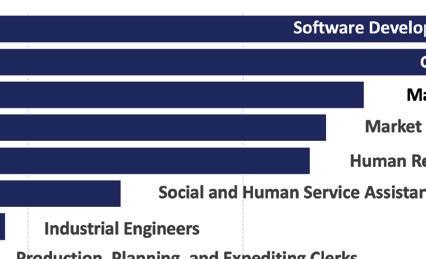







icate will be primarily focused on AI and strategic decision making, he said.
But Kroeninger and staff aren’t just hyper-focused on AI. Their main goal at the MSOE Center for Professional Education is to make upskilling at MSOE easier for alumni and newcomers alike, by creating a bevy of customized training solutions, workshops, seminars, webinars, online programs, conferences, and special events.
The center will continue to provide existing popular training programs like its project management and Six Sigma certificates, while at the same time listening to employers to help create new programs. Those could include tailored onsite training programs, like the one the center recently provided to a company on patent searches, or it could mean developing the specialized AI courses.
need to know, and we don’t know enough to know how to apply this in order to see a benefit from it.’”
The center is hoping its three new certificate programs slated to launch this fall – an AI literacy certificate, an AI application certificate, and an AI program aimed at executive-level managers – will help address those quandaries.
The literacy certificate will be designed to get everyone in a company up to speed on what AI is, how it works, and perhaps how they can benefit from it, while the application certificate will be more geared toward software developers and data users – “The ones that are hip deep in AI and making it work,” Kroeninger said. The executive certif-
“Our business partners, they’re often looking to address pains or gains that they’re experiencing in their business,” Kroeninger said. “Our job is to develop an attractive, viable array of programs that satisfies defined needs and interests – both industry informed needs as well as individual professional needs.” ■



















McAlister.
The Serve MKE program will seek to alleviate some administrative tasks that come along with hiring and retaining staff but are often seen as barriers by smaller-sized operators with limited resources. Employ Milwaukee plans to hire two additional staff members who will serve as career coaches or case managers for participants and help connect them with available support services such as childcare, transportation, rent subsidies and uniforms.
“We understand the burden of an employer, so we don’t want them getting caught up with too much paperwork and having to manage another level of managing their employees,” said McAlister.

WORKFORCE CHALLENGES are nothing new to Milwaukee’s service and hospitality industry. Between staffing shortages that pre-date the COVID-19 pandemic, high turnover rates and increased wage inflation, employers are often faced with less-than-ideal business decisions based on available labor.
One local program aims to shoulder that burden by subsidizing wages for on-the-job training and providing support services to new and current hospitality workers in Milwaukee County – particularly those representing historically marginalized populations.
The initiative, known as Serve MKE, is led by Employ Milwaukee thanks to a recent $2.6 million grant from the U.S. Department of Labor. Key to its overall goal of bridging hiring gaps for employers, Serve MKE aims to remedy some of the root causes of the local hospitality sector’s workforce issues.
“For too long, essential jobs in the hospitality sector have been characterized by low wages, limited benefits, and minimal opportunities for advancement,” said Employ Milwaukee president and CEO Chytania Brown in a statement. “Through Serve MKE, we aim to address these disparities and ensure that all hospitality workers have access to gainful, quality employment.”
Serve MKE will officially launch in fall and is
projected to impact 400 participants and employers over its three-year duration. Achieving that outcome requires the direct involvement of those who know the industry best.
“This whole concept really was derived from our employers,” said Jeffrey McAlister Jr., manager of business solutions at Employ Milwaukee. “They are the ones that really guide us to kind of know what’s going on in the industry.”
Employ Milwaukee meets monthly with its hospitality industry advisory board, which is made up of 13 employers ranging from large corporations like Marcus Hotels & Resorts, Delaware North and Levy Restaurants to local operations like The Bartolotta Restaurants and Turning Tables. The cohort also includes Potawatomi Hotel & Casino, Outpost Natural Foods, The Iron Horse Hotel, Baird Chicago & Midwest Regional Joint Board and the United Food & Commercial Workers Local 1473.
Based on discussions and direct feedback from the group – which now functions as the Serve MKE work committee – Employ Milwaukee is creating a framework for the program that addresses employers’ most pressing needs.
“For example, we’re sifting out what the top training choices will be for the training programs, what are the top 10 positions that they want to focus on and what the trainings will look like,” said
While there is a six-month cap on wages covered by Serve MKE, the program’s support services will be ongoing – even if a participant switches jobs within the industry.
Meeting the workforce where it’s at is a critical piece of the puzzle when it comes to strengthening the hospitality talent pipeline. It’s a reality that has become all too clear in recent years at Milwaukee Area Technical College, where enrollment in its culinary arts program is increasingly dominated by part-time students.
“A lot of them work a full-time job or maybe two part-time jobs. Maybe they’re raising a family. You certainly welcome that – we really, really do – and we want to work with you,” said Paul Carrier, culinary arts lead faculty and department chairperson at MATC.
In his more than 25 years at MATC, Carrier has never seen as much interest in the culinary arts program as he is seeing now, he said. And in today’s post-pandemic world, that interest is largely being driven by students who don’t fit the traditional profile of an aspiring professional chef.
“It’s individuals (pursuing) second careers. That’s a big jump for us,” said Carrier. “Individuals that work in a career for 30, 40 years, then they decided they want to go to school just to learn how to cook or they want to start their own business out of their home, catering or a food truck.”
With the plethora of culinary and hospitality job opportunities out there these days, MATC has expanded its course offerings – now the only culinary program in Wisconsin offering digital badge certificates – and broadened its approach in preparing students for whatever the future holds.
“It’s not just, you know, graduate, get a job,” said Carrier. “It’s more like, seek another opportunity as a building block to a different type of career –maybe it’s a food writer or food styling – we don’t limit it just to one. That’s what it used to be, just one little area. It used to be country clubs and five-star restaurants, but those days are over. There’s all kinds of opportunities and that’s what we want to embrace as a program. We want this to be everyone’s program.” ■






Member-driven. Member-strong. ABC is proud to represent the construction pros who build communities and shape the world. We make sure your voice is heard. Together, merit construction speaks as one.








Win work. Develop careers. Transform the industry. Become an ABC member today.
abcwi.org/membership/



















Starting a business is hard work. It requires courage and a good idea, a great team and even better execution day in and day out, month after month, year after year. To grow and sustain that business for one, two or several generations, it requires innovation, teamwork and determination.
According to data from the U.S. Bureau of Labor Statistics, about 20% of U.S. small businesses fail within the first year. By the end of their fifth year, roughly 50% have faltered. After 10 years, only around a third of businesses have survived. The businesses in this anniversaries section have survived and thrived for many times that.
So, it’s time to celebrate and POP THE CHAMPAGNE! For 29 years we at BizTimes Media have been happy to shine the spotlight on business success. These metro Milwaukee companies are celebrating special anniversaries from 5 to 125 years. Enjoy their stories and read about their plans for the future.
DAN MEYER Publisher/Owner, BizTimes Media


When we think about banking in today’s world, many images come to mind: a mobile app, an ATM, or a debit card. These images reflect an industry which consists of a series of transactions flashing back and forth in the cyber sphere, at a rate faster than one can blink. Behind those millions of transactions, there are still real people, at least in the case of Port Washington State Bank.
Family-owned banks are alive and well today, and Port Washington State Bank is a shining example of why they are unique. As the only financial institution headquartered in Ozaukee County, their service to the county’s parks, nonprofits and community organizations are numerous. They support what they call the “Wisconsin way of life” which is to say that the parks, pastimes and community events that make Wisconsin living special are near and dear to the Schowalter family. To that end, in honor of the anniversary, the bank has committed an additional $125,000 in donations within Ozaukee County.



For five generations and 125 years, Port Washington State Bank (PWSB) has taken care of their communities and the people and businesses within. Chairman/CEO Steven Schowalter, Vice Chairman Mark Schowalter and President/COO James Schowalter are fourth-and fifth-generation descendants of the bank’s original co-founder, Clarence Hill, who opened the Port Washington State Bank in September of 1899 with business partner George Henry.




To this day, the bank still resides at 206 N. Washington Street, but has expanded to occupy 5 acres of Port Washington’s picturesque downtown.
When asked about how family-owned community banks are different, James Schowalter shared, “We definitely have different goals than big banks. We’re not focused on rapid growth. We’re here to take care of the community, and specifically, the businesses and families in them. Through that care, we grow at a pace that allows us to provide a personal touch and a more customized experience. We still offer the same products and technology services you would expect from any bank, but with a level of service that receives high praises in our annual customer feedback surveys.”
Giving and showing up for the community doesn’t end with the Schowalters. In addition to community donations of more than $3 million in the past 10 years, PWSB’s employees volunteer at dozens of community events, an average of 1,300 hours per year. The bank also shares building resources with the community. The PWSB Community Room, located at 218 E. Washington St, in Port Washington, is available to nonprofits and other local area organizations.
As a bank that focuses on businesses and families, PWSB offers business loans, mortgages and personal and business banking products to businesses and families in Ozaukee County and throughout southeast Wisconsin.
We employ 130 people across 8 branches in Mequon, Thiensville, Cedarburg, Grafton, Port Washington, Saukville, Belgium and Fredonia. With assets of $966 Million as of last December, PWSB ranks in the top 15% of banks as to size in Wisconsin. n


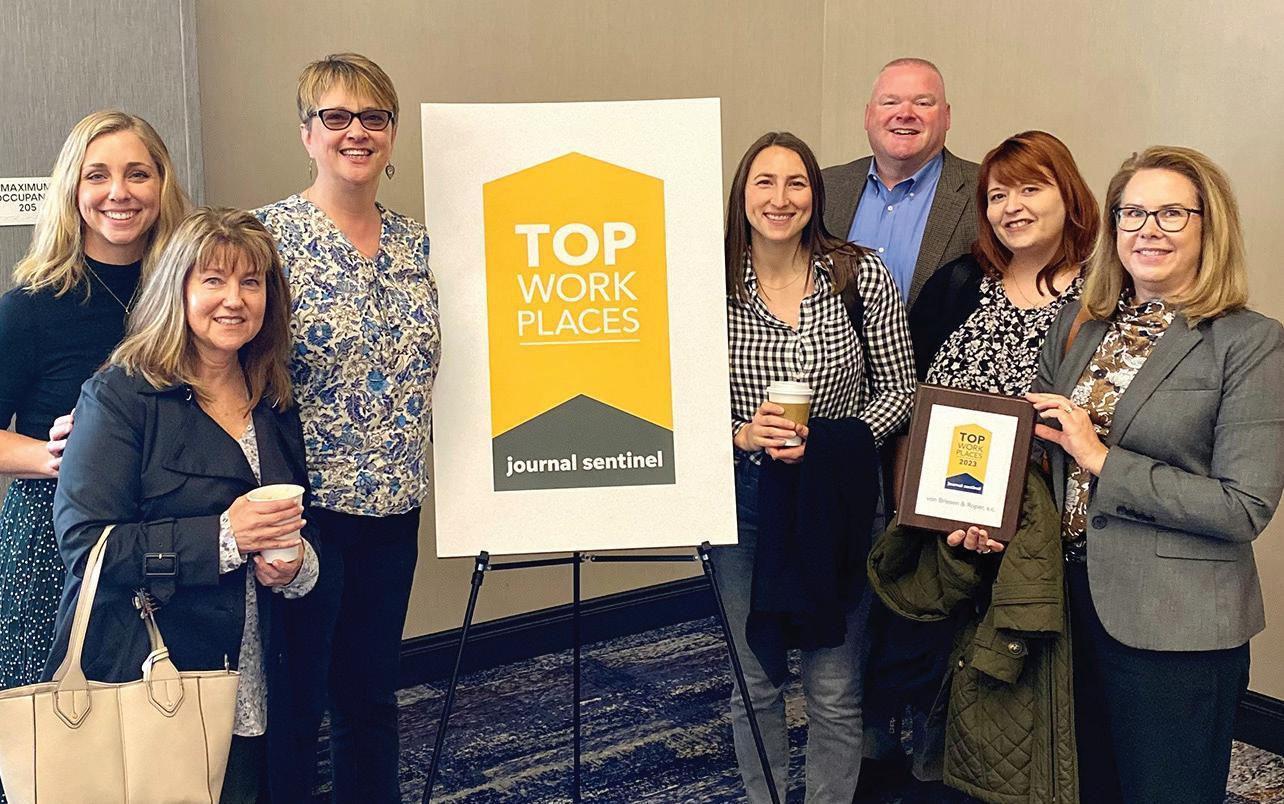

When/how did your company begin?
von Briesen & Roper, s.c. was founded in 1904 by Ernst von Briesen, a 1903 graduate of Harvard Law School. Ernst opened his practice in Milwaukee in January 1904 and displayed a window sign that read “Advocate”. His first cases included a $13.00 collection case and several small claims cases. As his practice grew, he gravitated toward wills and probate and taught those subjects at Marquette University Law School. From these roots, von Briesen has grown to seven offices throughout Wisconsin and in Chicago with over 180 professionals serving our clients and communities.
For many of us the recent pandemic was probably the biggest challenge we have faced in our careers and possibly our lifetime. The challenges started with pivoting to all remote work over the course of one weekend and continued with worrying about the health and safety of our workforce; helping our clients with issues they never faced before; and guiding our firm through issues we had never faced before. We learned to innovate and adapt in real time to take care of our employees and meet the needs of our clients.
Talk about your oldest and/or newest employees.
We take great pride in being named both a Top Workplace and a Best Places to Work and we love talking about what makes us great … our people. Some of our attorneys and staff have been with von Briesen for their entire careers. Every year we put together a book honoring those celebrating a work anniversary, which we call “Honoring Commitment to Excellence”. We begin honoring at 10 years and have recognized employees for up to 45 years of service. Our people are our greatest asset and this is one of the many ways we honor them.
What opportunities/challenges do you see on the horizon for your company?
We are truly excited for the next 120 years and see tremendous opportunities for growth in several practice areas and as a Firm: 1) real estate development involving some of the biggest development and redevelopment projects in the area, including eminent domain, workforce housing, TIF/TID development and construction issues; 2) high-stakes litigation with matters ranging from class actions to environmental cleanup and shareholder disputes; and 3) continued strategic recruiting of great lawyers in the locations and practice areas where our clients’ needs take us. n



Lippert Flooring and Tile started on the kitchen table in a small house on 112th and Kaul St in Milwaukee on August 18, 1949.
William Lippert, Sr. had 30 years of experience as a master craftsman before starting his own residential installation business with his wife Loraine, and his eldest son William, Jr. (Bill).
Once William, Sr. retired in the 1950s, Bill took the reins. Joined by his three brothers, Al, Wayne, and Gary, they ventured into small commercial tile work. The 1960’s saw them tackling some of the new high residential buildings on the lakefront. They also started a new manufacturing business in the fledgling cultured marble industry, making vanity tops, bathtubs, and shower modules.

In the 1970’s, Lippert tackled many large commercial projects, including Northridge and Southridge Malls, by far the largest projects they had undertaken to date, establishing them as an area leader in capacity and technical skill.
In 1992, Lippert acquired a small commercial floor covering installation firm to expand their service capabilities to all common commercial flooring finishes.
The company is owned and managed by third generation brothers Les and Jeff Lippert, who have successfully guided the company through several challenges. They have focused on building a dynamic, young, talented team capable of continuing Lippert’s upward trajectory for growth and excellence for many years to come. Plans are
underway to achieve lofty goals.
Currently, Lippert employs nearly 100 people and specializes in the installation of tile, stone, carpeting, resilient flooring, wood flooring, and flooring restoration and maintenance.
Lippert has been involved with thousands of area projects over the years, pointing with pride to an ever-growing number of landmark properties in all commercial sectors.
Lippert’s hallmarks are technical skill and knowledge, an exceptional safety culture and record, true partnership with its clients, and accountability and integrity. These traits are a legacy of the founder, William, Sr., who would not compromise them for any price. His successors have upheld these principles as he expected they would.
The corporate cultural touchstones, adopted wholeheartedly by the Lippert team, are mutual accountability, chronic change for improvement, strategic diversification, and perpetuation of the company. In the challenges of the past, Lippert has survived and thrived because they value and protect their people and their financial stability. After many years, it is clear that Lippert’s long-term focus combined with tending faithfully to day-to-day matters with an unyielding commitment to its principles and values is a well proven strategy. The Lippert team is keenly aware of this. The past is prologue for the present, and the present is the foundation of the future.
Lippert’s team is in it for the long haul. Every day is a new beginning. n


celebrating 65
David J. Frank Landscape Contracting was founded in 1959 by David J. Frank, who passed away on February 9, 2019. An entrepreneur at the early age of 9, Frank began mowing lawns in his Shorewood neighborhood on Downer Avenue. By 12, he was already caring for more than 30 neighboring homes.
He liked to boast that he was the only one at school who had a Federal ID number and business insurance.
In 1974 he relocated to Germantown where he purchased 4.5 acres and built a combined office, garage, and shop. He and his wife lived in a camper in the parking lot for the next seven years.
Over the years, David J. Frank advanced in the green industry by creating in-house video training, marketing programs, proactive service strategies and safety initiatives. His goal from day one was to delight clients through great customer service, a mission that is strongly woven into the company culture.
Six decades later, David J. Frank Landscape does more than just cut grass. Its robust offerings of residential and commercial services include design and build, landscape management, lawn and tree care, irrigation, seasonal color, holiday décor, interiorscapes, and snow removal.
It is now one of the largest landscape contractors in the nation and southeastern Wisconsin’s leading landscape company. Nearly 100 crews are dispatched daily to residential and public job sites from its headquarters
in Germantown and branches in Milwaukee, Madison, Kenosha, Brookfield, and the North Shore.
Last June, the company made Landscape Management magazine’s Top 150 list, the country’s top one percent of landscape companies ranked by revenue. David J. Frank Landscape was the only company based solely in Wisconsin to make the list.
The company has been recognized with hundreds of local, state, and national landscape awards. They began this year by receiving five state landscaping awards, four of which were gold.
New leadership (and championship tennis coach) fosters continued growth
David R. Frank, who grew up in the company business, is following in his father’s footsteps as chief executive officer and president. He has played a major role in the company’s growth and introduced stateof-the-art technologies that allow for faster and more accurate responses to customers’ needs.
He is also the head tennis coach at Marquette University High School, and in 2023 he led the team to the boys Division 1 state championship, the 13th he and the school have won in the last 16 years.
Their expertise in sustainability has made them the go-to company for green roofs, bioswales, and water conservation and reclamation projects. They also offer pesticide-free and herbicide-free landscapes. They continue to lower their carbon footprint by increasing their use of battery-powered equipment. n




Throughout the 2023-24 academic year, Alverno College is celebrating the 50th anniversary of its groundbreaking abilities-based curriculum.
In the early 1970s, then President Sister Joel Read reached out to local businesses to ask what skills they needed to see in college graduates. From their feedback, Alverno’s 8 Abilities were created, and over the last 50 years they have been refined, redefined, and continue to be relevant.
Woven into every course at Alverno, the 8 Abilities empower our students to become agents of change and principled leaders who meaningfully engage with their communities. They focus specifically on mastering skills in aesthetic engagement, analysis, communication, developing a global perspective, effective citizenship, problem solving, social interaction and valuing in decision making.

The National Association of Colleges and Employers (NACE) 2023 job outlook research cited the top eight career-readiness competency needs: communication, critical thinking, teamwork, equity and inclusion, professionalism, technology, career and self-development and leadership proving that after 50 years, Alverno’s Abilities continue to meet, if not exceed, the expectations of employers seeking quality candidates with career-ready skills right out of college.
Alverno hasn’t provided letter grades for 50 years. Rather than use letter grades, Alverno pushes students to reach their highest personal potential. A standard letter grade tells students where they stand today; an Alverno assessment tells you that plus how to take the next step to achieve greater understanding and application of knowledge.
At Alverno, we challenge students to “know it and show it.”
Students receive so much more than a single letter
grade. They are given entire paragraphs of feedback, much like the performance reviews they’ll receive in the real world. This assessment lets students know what they’re doing well and where they can grow, fostering a desire for continuous improvement. All of our 8 Abilities are critically analyzed each year to determine their relevance and inspire a fresh perspective.
Benefits of non-traditional grades:
» Students focus on their learning. They see challenges as opportunities to learn and grow, rather than as obstacles to their success.
» The impact of systemic drivers of inequality like race, gender, socioeconomic status, and disability is reduced, leveling the playing field for all students. Regardless of what level they start at, students are assessed for their own individual rate of growth.
» Students are encouraged to take more risks. When they’re focused on performance and their strengths rather than grades, students are more willing to experiment with new ideas, leading to deeper learning and more creative thinking.
» Student learning is more accurately represented. A single letter grade reflects a student’s ability to hit a one-size-fits-all benchmark, whereas our assessment-based model measures each student’s mastery of a subject and ability to apply knowledge and skill in real-world settings.
In the decades since Alverno’s 8 Abilities were born, countless educators from across the U.S. and around the world have come to study and adopt this model of teaching and learning.
Why? Because it works. Alverno was one of the first, but we won’t be the last. n

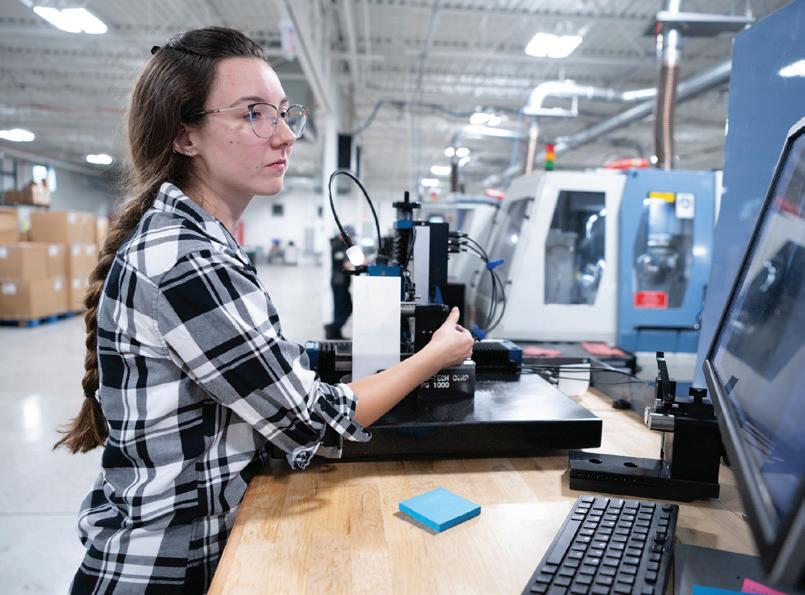

Carbide Grinding Co., Inc. now dba Gorilla Mill was founded in 1974 in Waukesha by Philipp Laubenstein, an Austrian immigrant who came to America to begin a new life.
CGC has produced special and customized tooling for local well-known national companies. Kevin and Veronica Cranker purchased CGC in 2003. In addition to Kevin and Veronica, Gorilla Mill’s ownership team includes Nathan Cranker, Hilary and Steve Roberts, and Brian Kilford.
During the transition period, a local distributor approached us requesting help to defeat a nationally produced end milling cutter. CGC responded and the tool outperformed the national brand.
In the next year CGC started to see other Great Lake states inquire about the tool. It was then decided that CGC would go national. However, the tool still needed a name.
One night, while sitting in the office with a few colleagues, the staff began brainstorming names. “Zebra Mill?” No, that’s dumb. “Viper Mill?” Taken, “Camel? Fish? Dog?” Nope, all dumb. Kevin then blurts out, “Gorilla Mill!”
A long pause followed… “That’s it!” Everyone agreed. It had power and alliteration. From there, the company ran with it. Every time a new line of cutters was introduced, Gorilla Mill went wild with names: Sasquatch, Silverback, Knuckledragger, Baboon, Kong, Missing Link and so on.
Soon thereafter we coined the phrase that would become our mantra. “Weapons of Mass Production” was made a registered trademark in 2005 and is a staple on everything it produces.
Gorilla Mill team members are rebels. Marketing to NFL-watching, Harley-riding CNC operators who wear their caps backwards.
We have an attitude we call swagger, poking fun of the government and other offshore brands. Gorilla Mill went from obscurity, to 300 distributors worldwide, and quickly became “The Guys” for tough milling applications.
Our confidence shows in its marketing strategy but has the product to back it. Gorilla Mill wins over 85 percent of all testing. As business was rolling in 2015, we received an invite from Boeing Corporation to participate in The Industry Challenge II at the AMRC testing facility at the University of Sheffield, England.
Along with world’s largest end mill manufacturing companies, Gorilla Mill participated in testing with their Phenom in cutting 6AL4V titanium under very strict conditions. After two phases of testing, the Gorilla Mill Phenom had so badly throttled the other manufacturers that Boeing canceled Phase 3 of the high velocity test.
A little company out of Waukesha, Wisconsin had outperformed multi-billion dollar cutting tool companies that have been around 50-100 years. It was an eye opener.
Gorilla Mill started this endeavor with $1.25M in annual sales in 2003, the team was nominated for Wisconsin Manufacturer of the year in 2017 and has been named to BizTimes Milwaukee’s Future 50 list. This year, Gorilla Mill will surpass $20M in annual sales with a remodeled high tech 24,000-square- foot facility and a new 5-acre site for plant two in the same business park. n


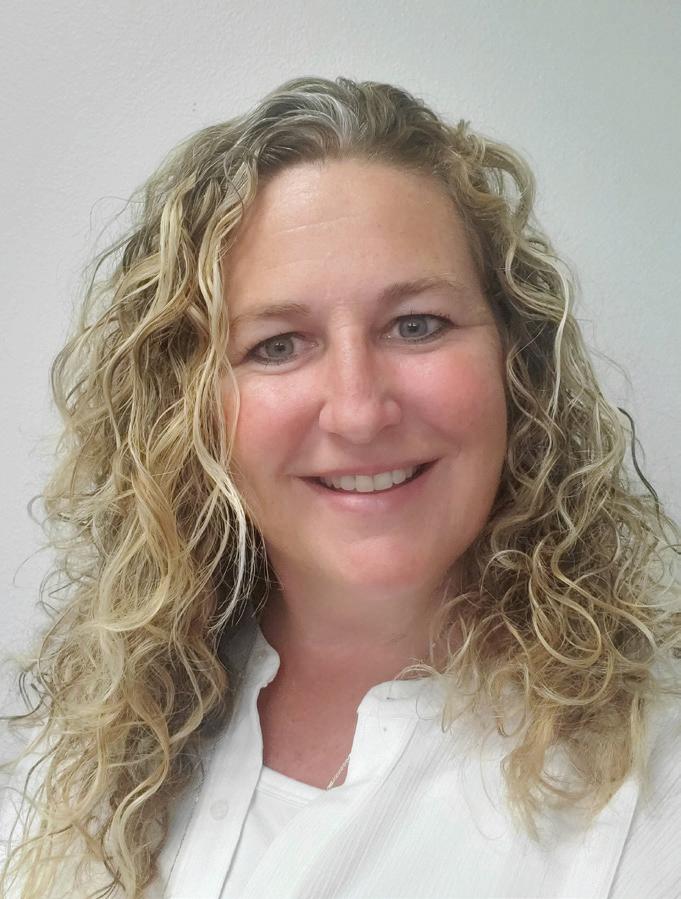
celebrating 50

Shortly after finishing his apprenticeship as a Tool and Die maker, Thomas Klusken ventured out to start his own company in 1974. As a Marine and Vietnam Veteran, he had the courage and work ethic to do whatever it took.
With seven different loans from family and banks plus donated equipment from his tool maker father-in-law, K&S Tool & Die was incorporated. Housed in the back of a liquor store in Oconomowoc with 3 employees, this tenacious man started a legacy company.
By 1978, land was purchased in Ixonia and a new plant was built. Multiple additions over the years were a testament to the growth of the company.
Tom purchased a stamping press to test the dies and eventually envisioned this machine could also expand capability to his customers. A stamping plant was built across the street in 1999 and subsequent new office and manufacturing plant in 2000.
He renamed the company K&S Tool, Die & Manufacturing, and expanded the capabilities past Tool and Die and stamping. These included laser, welding, brake press, production machining, wire EDM, robotic welding and assembly. With another three additions over the years, K&S Manufacturing is
now a full vertically integrated metal fabrication plant servicing OEM customers.
In his decades leading the company, Tom allowed his entrepreneurial sense to lead him through challenges like economic downturns, market fluctuations, technological advancements, and shifts in customer demand and industry dynamics.
He led with a strong sense of intuition, grit and wisdom from years on the manufacturing floor. Prior to his death in 2012, Tom passed the reigns to the next generation.
Today, K&S Manufacturing is a certified womanowned business and continues an ongoing commitment to excellence in metal fabrication. We have been consistently recognized by our customers for excellent on-time delivery and quality.
Out of the nearly ninety employees, a dozen have been with the company over 25 years. Our predictive engineering and new product integration model have set us apart in the industry. As we celebrate 50 years, it is an opportunity to recognize the hard work of the team, express gratitude to clients and partners, and inspire confidence in the plant’s continued success and future endeavors. n
biztimes.com / 43



A golden anniversary is not merely a date on the calendar. It represents a rich history of embracing technological advancements, navigating market shifts, perpetuating a dedication to quality, and exceeding customer expectations. As KDV Label celebrates this milestone, we can certainly reflect on successfully and continually achieving each.
Established by Dick and Karen Vaughn in their garage with a single Webtron press, KDV Label emerged as a humble venture with a singular mission: lead with service.
From household goods to automotive products to food and beverage, KDV Label has earned and strengthened a reputation for excellence, becoming a partner to brands seeking unparalleled quality and service across these and other consumer goods markets.
Over the past five decades, KDV Label has continuously evolved and invested to meet the everchanging packaging demands of the brands we serve. From traditional flexographic printing to the latest digital printing technologies, aligning each investment to continuously improve in serving our customers.
The level of service KDV provides is rooted in the unique approach the Vaughns established from the beginning and remains our differentiator.
We continue to build our business model around strengthening and continuing to lead with service. With this focus, we have set ourselves apart with minimal lead times, impeccable art and SKU management, and consistent, quality label performance.
Every label we deliver is a testament to our unwavering attention to detail and rigorous quality
control processes. From sourcing quality materials to the precision of our craftsmanship, we continue to deliver labels that perform.
In fact, we recently received the Eugene Singer Award for Management Excellence. The award remains one of the industry’s most prestigious and coveted honors, recognizing excellence in business management through participation in the annual TLMI Management Ratio Study. We are honored and appreciative of the confirmation that our efforts and strategy have paid off and lead to growth.
From a single press to a multi-state, three-location production powerhouse that produces billions of labels each year for top brands, KDV’s next fifty years promise to hold just as many opportunities, challenges, and success. Leading with service will remain our mission, and the only constant in that endeavor is change. Advancements in technology and sustainability initiatives are among the top drivers causing brands to rethink their packaging. As we actively address these needs today, our ability to adapt and drive solutions will maintain our reputation of excellence.
Accordingly, KDV is advancing our digital capabilities to create new possibilities for both established and emerging brands; partnering with suppliers and customers to develop specialized material constructions to address critical issues, especially sustainability; and continuing our endeavors of continuous improvement in production and service.
As we raise a toast to 50 years of excellence, we also renew our commitment to delivering innovative solutions, superior quality, and unparalleled service for the next 50 years and beyond. n


celebrating 50


For half a century, SVA has been the backbone of success for countless businesses and individuals spanning the Midwest and beyond.
Founded in Madison, WI, in 1974 by Terry Von Haden and John Suby, SVA began as Suby, Von Haden & Associates, S.C., Certified Public Accountants. SVA has grown throughout the past 50 years to encompass SVA Certified Public Accountants, SVA Consulting, and SVA Life Sciences. Our humble origins keep us grounded, while our experience and way of working has made us the preferred professional services firm for a diverse range of clients.
Our team members’ expertise spans the areas of business consulting, tax, accounting, and audit in a diverse set of industries. We work towards meeting the strategic vision of each business and the owner’s personal financial goals. Our unwavering commitment to excellence has earned us the distinction of being certified as a Great Place to Work® for six consecutive years.
The core of what makes us SVA is our promise to Serve People Better. These three words describe how we work with our clients, our business partners,


and each other. It is who we are and what drives our success. Our very DNA is structured by 31 Fundamentals – principles that define our unique culture and direct our every move. These principles embody SVA’s spirit, fueling our continuous growth and success.
Serving people better over the last 50 years has equipped us with wisdom, resilience, and adaptability. Yet, it’s our vision for the future that truly invigorates us. From the fundamentals shaping our ethos to our unwavering commitment to community and excellence, our aspirations extend beyond the act of serving. We’re meticulously crafting the future, ensuring that the next half-century is as transformative as the last. As we reflect on our past and embrace the present, we’re not just reminiscing; we’re paving the way for an even brighter future.
Our mission is simple: to provide business owners and executives with unmatched financial and technology solutions to meet their challenges, capitalize on their opportunities, and balance their risk and reward. We strive to continue to meet our clients’ needs for the next 50 years, and beyond. n


Throughout Southeast Wisconsin, the footprint of Briohn Building Corporation is unmistakable.
From urban locations to suburban industrial parks, Briohn’s projects dot the region. This is a testament to the 45 years of dedication to delivering our clients the best design/build construction that defines the company.
It all began humbly at Brian and Cellene Byrne’s kitchen table in 1979 with the assistance of Brian’s cousin, John. Together, they created the name “Briohn” by blending their first names.
Slowly but steadily, Briohn embarked on its journey one project at a time, specializing in the construction and renovation of industrial, office and retail buildings.
Since buying the business from the founders, Nelson and Katy Williams and Breann Mila have continued Briohn’s legacy. Our team has prioritized expanding our customer base, enhancing services, and innovating across the board. The team has continued to expand our office space, including a new public-facing venue to foster client collaboration and community engagement.
The heartbeat of Briohn’s success lies not just in bricks and mortar, but in the enduring relationships we have forged. Many of our dedicated employees have worked here for decades, mirroring the loyalty of our valued clients who have entrusted us with the growth of their businesses.
Many of Briohn’s clients have worked with Briohn on project after project, year after year, often spanning multiple generations.
Over the years, the company has expanded its offerings. In 1997, Briohn expanded by adding Briohn
Property Management, becoming stewards of over 4.5 million square feet of industrial space across the Midwest. Then, in 2001, we integrated Briohn Design Group, broadening our expertise to include architecture, structural and civil engineering, interior design, and land development.
The company has transformed dormant parcels into bustling industrial hubs like Pewaukee Woods North, Muskego Commerce Center, Mukwonago Industrial Park, the Lisbon Business Park East, and Pewaukee 1694 among many others.
Together, we’ve tackled complex projects over the years, finding ways to push ahead with sites impacted by environmental, soil, or zoning challenges, while keeping our clients’ goals on track. To do this, we have prioritized innovation, forging partnerships with stakeholders to turn problems into opportunities for success.
Throughout the journey, our guiding principles have remained unwavering: a steadfast commitment to quality, value, and safety, underpinned by an ethos of integrity. It’s this dedication that has earned us the trust of our clients, our employees, and the communities where we work.
Looking ahead, we are optimistic about the opportunities for collaboration, creativity and problem solving that lie ahead.
As Briohn embarks on the next chapter of its story, the company remains deeply rooted in our community, giving back to causes close to our hearts and ensuring that this legacy of service endures for another 45 years and beyond. n



celebrating 45

In 1979, Edward Hastreiter, a Vietnam veteran with an accounting degree, worked as an auditor for the state of Wisconsin. While working with small businesses, his keen observations revealed a glaring gap.
Drawing inspiration from Michael E. Gerber’s insights in “The E-Myth,” we understand that numerous small business owners often find themselves immersed in the technical aspects of their ventures.
What they should be doing is steering their focus towards working ON their business, facilitating growth and success.
This is precisely what our company specializes in – coaching individuals to manage and expand their businesses, moving beyond mere number-crunching and tax filing.
We’re here to help you craft a roadmap for substantial change in your business.
Ed Hastreiter wrote “Ten Secrets to Achieving Results In Your Small Business,” a culmination of fundamental steps emphasizing growth and development.
EWH recognizes the challenges small business owners face, a familiarity derived from being a small business ourselves. Over the last 45 years, the company has not only weathered the changes brought about by computers, the internet, and changing
tax legislation, but has thrived by offering the most modern accounting services possible.
A distinctive feature of EWH lies in its personalized approach. Each client is assigned a dedicated team comprising of an accountant, an accounting assistant, and a payroll specialist. This team maintains constant contact, offering a local, personal touch backed by years of experience. We transcend the conventional role of accountants – we’re your committed partners, working together to provide exceptional service and an unparalleled workplace experience.
Looking to the future, EWH sees both opportunities and challenges on the horizon. The ever-changing landscape of technology, tax regulations, and business dynamics presents a canvas for innovation. As the company continues to evolve, it remains committed to adapting its services to meet the emerging needs of small businesses.
EWH Small Business Accounting’s 45th anniversary is not just a milestone but a testament to our enduring commitment to excellence, innovation, and personalized service.
At EWH Small Business Accounting, numbers are our dream job! We enjoy them, are great at them, and take care of them so you don’t have to.
To learn more about EWH, visit ewhsba.com n

Since 2013, Triple Crown Products has been owned and operated by the 2nd generation.



How was the company started?
40 Years ago, Dennis and Janis Quernemoen started Triple Crown Products selling entry hall rugs out of their home in Waterford, Wisconsin. With his first company vehicle, an old bread truck, piled high with floor mats and uniform samples, Dennis traveled door to door and business to business soliciting sales.
Janis, a self-taught artist, hand-traced designs from her small desk in the basement. Artwork would range from company logos to detailed images of machinery.
How has the company evolved since its inception?
Since the basement beginnings, Triple Crown Products has expanded from entry hall rugs and janitorial supplies to branded workwear and promotional items.

Today, the company specializes in a wide variety of company apparel and promotional products, offering popular brands ranging from Carhartt and Ariat workwear, to Stanley and Yeti promotional items.
What do you attribute for the company’s success and longevity?
Since it’s foundation, Triple Crown Products has always attributed any success to the Lord. With no income and six kids to support at home, Dennis and Janis chose to place their trust in God and step out in faith to start their business. Through their continued faithfulness and the grace of the Lord, Triple Crown Products has continued to grow over the past 40 years.
What is your corporate philosophy?
What sets it apart?
“When we built the business, we wanted our customers to always feel that they’re number one,” Dennis Quernemoen, Founder
Since the beginning, the company has always had an emphasis on customer service, whether they’re confirming the correct artwork of an online order or following up on a recently shipped order to make sure everything went smoothly. The goal is always 100 percent satisfaction, no matter what.
What opportunities/challenges do you see on the horizon for your company?
Triple Crown Products has always emphasized the continued improvement of its systems and technology. The development team is excited about the possibilities of incorporating new technologies into our online presence, customer experience, and internal processing systems.
The biggest challenge ahead is tackling new growth, while maintaining top tier quality products and services.
What does leadership at the company look like?
Since 2013, Triple Crown Products has been owned and operated by the 2nd generation, Dennis and Janis’ six children. Under the new leadership, Triple Crown Products has continued building on the foundation started back in 1984, maintaining its godly values, and attributing all success to the Lord.
Today, Triple Crown serves over 14,000 businesses nationwide, and looks forward to what God has in store for our future. n


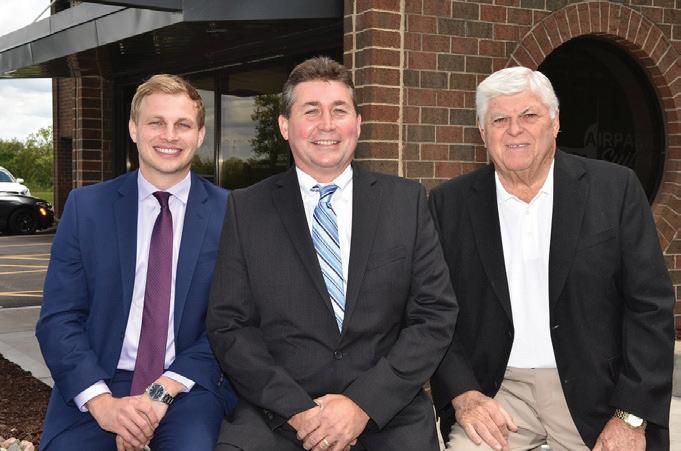
In 1989, Darryl Judson laid the groundwork for Judson and Associates, s.c., initiating a remarkable journey in commercial real estate.
His son, Mike Judson, joined him, setting the stage for the company’s prosperity in Waukesha County. Initially comprising of two agents, the company expanded to seven agents, concentrating on Waukesha County’s growth until 2006, when Mike assumed ownership.
The company initially focused on land development for industrial users across Waukesha County.
In the early stages, the Judsons frequented the Waukesha County Parks and Planning Department, along with numerous local township planning departments. Their projects, including land sales, evolved into leasing and sale opportunities, prompting Judson to extend their personalized services to other communities, garnering appreciation from a multitude of clients.
Presently, Judson and Associates has 14 employees, including 10 agents, dedicated to upholding the same company values established over three decades ago.
Demonstrating their ability to assist clients statewide, the company maintains a significant presence in the five counties of southeast Wisconsin.
In 2024, Matt Judson was named president, poised to build upon the strong foundation laid by his father and grandfather, and steering the company into the next era.
Additionally, Cole Russell was promoted to senior vice president, recognizing his years of growth and
contribution. The team also includes Will Schlosser, Jack Russell, Luke Russell, Colleen Geiger, Jarrod Murbarger, and Mike Steiner, who focuses part-time on land sales for residential development. The efficient functioning of the office is attributed to the diligent efforts of licensed office manager, Amy Blok. With a team of dedicated professionals, they’ve earned a reputation for their commitment to client satisfaction.
In addition to facilitating sales and leasing of industrial, office, retail, investment real estate, and land development, Judson established a property management company to cater to its loyal commercial investment clientele.
Managing 23 industrial, office, and retail buildings throughout the area, they stay focused on the same personal care for each owner’s investment. Offering the best service and response time to hundreds of tenants while attempting to find the fairest solutions to daily challenges, all while maintaining a great return for the investors. This team is led by Liz Pfaff and supported by Sandra Wnuk, Lisa Judson, and the rest of the Judson team.
With a commitment to representing sellers, buyers, landlords, and tenants across all commercial real estate sectors, Judson and Associates adheres to its mission: “Your Best Interest is Our Bottom Line.”
This guiding principle underscores their approach, ensuring clients receive unparalleled service and expertise. n


30 YEARS OF BUILDING, RESTORING, AND RENOVATING MILWAUKEE STRUCTURES YEARS
JJB Home, named after its owner, Jeffrey James Bartelt, celebrates 30 years of providing stewardship and service to the buildings and residents of SE Wisconsin. After working in the Laborer’s Union, learning from the “Greatest Generation”, Jeff founded his company in 1994 to fill a need in his community: a contractor who does what he says he’s going to do.
Today his business has grown to 22 employees with core values of accountability, stewardship, resolve, abundance, and curiosity guiding the ship.
As a Marine and a Mason Tender, Jeff is no stranger to tough sleddin’.

For years, Jeff and his team focused on essential services like roofing, tuckpointing, stucco, and carpentry. By the early 2000s, offerings broadened to include bathroom and kitchen renovations, as well as custom garage builds. In 2016, with Joe Bartelt, Jeff’s eldest son joining as partner, JJB began focusing on expansion. You can say that trade work runs in the family, as Joe, a fourth-generation carpenter, has every intention of one day passing the baton to his children, Bonnie and Elsie.
The heart of what we do at JJB lies in just “wanting everyone to be happy”. In an industry where egos can be large and accountability can be waning, the Bartelts are dedicated to their employees and clients alike. Joe Bartelt is particularly proud that with over 200 reviews of our work, JJB has a 2% better rating than the happiest place on earth, Disneyworld.
Our employees have a lot to say about what separates JJB from the rest:


“I like the culture, the type of work that we do. At JJB, we really take into consideration what the client’s preference is.” Said lead carpenter, Alex Moezen. “This can at times make the work more complicated, but we cater to the client more than other companies.”
“You get to participate in a company that is improving and evolving its systems at a rapid pace to meet the growing needs of the renovation and homebuilding industry in one of the most challenging times for the renovation industry.” said Spencer Bennaton, project manager.
“Overall commitment to the client. It’s not just about cashing a check.” Allison Sweere, estimator. “The team’s level of detail in communication is impressive and something I haven’t seen with the tradespeople I’ve worked with in the past.”
JJB owns 2 additional companies; METRO R3 and Metalsmoke, allowing us to broaden our offerings to include design work and metal fabrication (respectively). With plans to open a design center/ showroom in Oak Creek this year and a Warehouse Dispatch Center in Cedarburg next year, JJB expects to grow to 70 employees by 2026. Continuing to offer total interior and exterior design-build and restoration services along Lake Michigan and into Madison.
Currently, JJB is launching a rebrand from JJB Home Improvements to “JJB Home”. JJB is a recipient of several awards including: 6 categories of Shepherd Express’ Best of Milwaukee and Inc Magazine’s Inc. Regionals (Midwest’s fastest growing companies) placed at #118. n


Melodie Wilson Oldenburg was the visionary founder and leader of ABCD until 2009, when she sadly passed away from breast cancer.
celebrating 25
In 1992, Emmy award-winning broadcast journalist Melodie Wilson Oldenburg announced on live television she had been diagnosed with breast cancer. At a time when cancer—especially breast cancer— was rarely discussed openly, Melodie chose to use her public position to speak out about her personal experience with the disease.
She started to receive letters and calls from people she had never met. They too had been diagnosed with breast cancer and wanted to provide hope and guidance by sharing their personal experience with her.
Melodie quickly realized the benefits of emotional support but recognized a tremendous gap in care—too many people lacked resources and access to quality, personalized support.
Leaving her career in 1998, she brought together breast cancer patients, survivors, physicians, clinicians, and caregivers to launch ABCD: After Breast Cancer Diagnosis on June 15, 1999, with the founding vision: “No one should go through breast cancer alone.”
Since that day, our organization has been laserfocused on providing FREE, one-to-one emotional support to anyone impacted by the disease. Our signature service is creating a unique match between someone who needs support and an ABCD Mentor who not only shares a similar diagnosis and treatment plan, but also has similar ages, common interests, personal characteristics, career paths, and family dynamics.
ABCD Mentors are volunteers who are at least one year past completing their breast cancer treatment, are living with metastatic disease, or are a care partner. Every Mentor is vetted and interviewed by ABCD staff and then participates in comprehensive training to learn how to provide emotional support.
Starting with 23 Mentors in 1999 and focused
primarily on serving people in Southeast Wisconsin, ABCD has strategically expanded to an international organization, leveraging advances in technology like the internet and cell phone usage. In 25 years, we have trained more than 850 Mentors across the United States and, because all services are delivered virtually, ABCD has proudly served more than 109,000 people from New York to California, Alaska to Florida, Australia to Sweden.
As a non-profit organization, ABCD’s growth continues to be sustained and accelerated by the dedication, generosity, and commitment of many of Milwaukee’s community and corporate leaders. Year after year, we can count on our hometown to ensure that our critical services are always available. As we move into our next 25 years, demand continues to rise as more people than ever are diagnosed or are living with breast cancer. ABCD will always be here— ready and able to provide hope, compassion, and understanding when people need it most.
People’s lives are turned upside down and inside out after a breast cancer diagnosis. Through the power of ABCD’s one-to-one support—and the vision of Melodie Wilson Oldenburg—no one needs to go through it alone.
Join us for a memorable evening on June 15 at 6 pm at the iconic Pfister Hotel in downtown Milwaukee to commemorate 25 years of providing hope, compassion, and understanding to anyone impacted by breast cancer. We will also honor the remarkable legacy of ABCD founder, Melodie Wilson Oldenburg, and the Oldenburg Family. Visit bit.ly/ABCD25th for ticket and sponsorship information. n


Since our founding in 1999, our focus has always been providing the best intellectual property (IP)services possible. Our success lies in a singular focus on IP law and the strong relationships we have with our clients.
Many of our clients have been with us from the beginning (when there were fewer gray hairs). This focus and these relationships give us the ability to secure and defend their rights and their ideas in a manner tailored to the goals and needs of each client without breaking the bank.
The firm was founded by James Boyle, John Fredrickson, Timothy Newholm, David Stein, and Michael Gratz who remember sitting on folding chairs and talking to their clients on flip phones while waiting for files and furniture to arrive.
Other talented attorneys, starting with Andrew McConnell and Peter Stomma, soon joined and the firm took off from there. Since that start, the firm has grown to include 25 attorneys and about 20 dedicated support staff, making Boyle Fredrickson the largest IP specialty firm in Wisconsin.
Collectively, our attorneys have decades of
experience assisting clients in the mechanical, electrical, chemical, and life sciences disciplines. We assist clients with patent filings and registering trademarks and copyrights. We protect our clients’ rights in litigation, when necessary, though we pride ourselves on providing wise counsel to keep our clients out of court as much as possible.
We also help our clients maximize their return on development investment through negotiating and drafting licenses, joint development agreements, mergers and acquisitions, and more. Our attorneys have established relationships with international associates around the world to protect the clients’ IP rights anywhere they do business.
Boyle Fredrickson thanks all of our clients for the trust they have given the firm for the past 25 years.
We also want to thank our incredible staff. Our team is proud of its past and looking forward to continuing the high level of service clients have come to expect. For our current clients and to our future clients – Boyle Fredrickson welcomes you with this simple message, “You’ve got ideas. We protect them.” n



For 25 years, Emory & Co. has served as a market leader in Wisconsin providing privately held companies with business valuations and company sale transactions.
Founded in 1999, the firm’s work involves “middlemarket” companies, typically with annual sales between $5 million and $100 million on the mergers and acquisitions advisory side and often larger companies on the valuation side of the business.
“We appraise the stock of many of the leading privately held companies in Wisconsin for a wide variety of purposes,” said John Emory Jr., president. “More than a third of the 50 largest privately held companies in southeast Wisconsin are our business valuation clients. We are dedicated to our clients and measure our success by their success,” added F.R. Dengel, managing director.
Emory & Co. began as a business valuation firm. Emory’s father, John Emory Sr., had been an investment banker with Robert W. Baird & Co., where he developed a specialty in appraising the stock of privately owned companies.
When Baird exited the appraisal business in 1999, Emory’s father and two others left Baird, John Emory Jr. left his position as a mergers and acquisitions attorney at a large business law firm — and Emory & Co. was born.
When he turned 80 a few years ago, John Emory Sr. stepped back from day-to-day involvement at the company, leaving John Emory Jr. to lead it.
With more than 150 company sale transactions completed to date, the team at Emory & Co. finished another strong year selling companies and doing appraisals in 2023.
The team spends a lot of time listening to their clients to truly understand their goals and business culture, to best advise on which potential buyers would be better cultural fits than others. The firm typically contacts many potential strategic buyers and private equity groups to find the best buyers who bring top dollar, as well as those who will protect the culture and legacy of the business.
Their clients find them primarily through referrals from other prior business owners and the network of trusted business advisors, such as bankers, lawyers, accountants, and wealth managers.
“We’ve achieved sale prices substantially above what our clients and we have expected in most of our business sale transactions representing sellers in the last five years, which has resulted in extremely happy seller clients and future referrals,” Taylor Kotke, managing director, said. “As baby boomer business owners continue to seek exits from owning their companies, our future looks bright.” n


Café Corazón is proudly celebrating 15 years in the heart of Riverwest. Our family-owned and operated restaurant, was established in 2009, as a mom-andpop taqueria. We embarked on our journey with a hybrid menu sourced locally and designed to satisfy both meat and plant-based diners.
We have since expanded our menu and grown to three locations with Bay View opening in 2015 and Brown Deer in 2022. We also provide catering for private and corporate events.

Our growth has been fueled by the dedication and passion of employees who embody Corazón’s core values. Our team comprises resilient, compassionate, and creative individuals. We all are committed to delighting customers with homemade meals, while championing sustainable practices in the industry. We foster a company culture centered on inclusivity and wellness.
Ingredient sourcing has been a priority from our inception. We began by cultivating our own produce and sourcing beef from the family farm, and later established an urban garden in Riverwest.
Our dedication to environmental stewardship extends to pioneering composting initiatives. In 2023 alone, we composted an impressive 67,373 pounds of organic waste, furthering our commitment to sustainability.
We like to distinguish ourselves as more than an “authentic Mexican” restaurant. Embracing a from scratch, Latin-inspired culinary lifestyle, our vegan/ vegetarian menu underscores our commitment to inclusivity and sustainability. Our innovative offerings from the bar and kitchen, including rhubarb
margaritas, asparagus and black bean enchiladas, stuffed bell peppers, and garnishes featuring beauty heart radishes, have been sourced from our gardens.
We prioritize transparency in food sourcing, housemade spice blends, gluten free options and the elimination of nuts and soy oils. We go to great lengths to accommodate dietary preferences and restrictions.
The challenges of COVID disrupted our regular events, like raffle prizes, domino tournaments, complimentary Spanish and Latin dance classes, but true to Corazón’s resilient nature, we found a new life in our Tú y Yo Tuesdays. Tú y Yo, which means “You and I”, exemplifies our commitment to the community, as we partner with local nonprofits to help support the great work they are doing. For every taco plate sold on Tuesdays, we donate $1 to our partner of the month. We also share their content on our social media and in-store promotions. Additional specials throughout the week; Happy Hour, Mole Monday, and Vegan Thursday’s have all become favorites.
At Corazón, we aspire to be more than just a workplace: we believe in investing in our team. We offer comprehensive benefits including health, dental, and vision insurance, gym reimbursement, 401K, and ongoing leadership development opportunities. And let’s not forget the legendary employee parties, karaoke, and rock n’ roll shows.
Save the date! Join us on Saturday, November 9, 2024 as we celebrate with a Quinceañera Party in honor of our Riverwest location. Cheers to 15 years and a huge thank you to everyone who has shared in our journey to reach this milestone. Advance tickets already for sale on our website. We hope you celebrate with us! n


celebrating 15


Fifteen years ago, my brothers James, Jalin, and I sat around our kitchen table talking about starting our own company.

One motivation was to have more free time – that still makes us laugh. Of course, that didn’t happen, but another motivation, to work for ourselves, did. More important to us now, is to work for our community.
Jalin Phelps is VP of Field Operations, James Phelps is President and I serve as Vice President of Business Development. We started to see the landscape of Milwaukee change. The focus of Milwaukee was shifting more toward downtown and the adjacent areas where we brothers were born and raised.
JCP has many projects to speak of with pride –the Fiserv Forum, Bader Philanthropies, Pete’s Fruit Market, the Moderne, Milwaukee Medical College and ThriveOn King, to name a few.
Right now, we are working on Howard Fuller High School, and a $20 million addition that we did for the Outreach Community Health Care, which will provide
expanded and much needed care in the community.
Outreach Community Health Care will have dental and mental health services.
“It’s important to recognize the fact that that this place has a dental, it has mental health services. So it’s kind of the full package, ” Jalin said. In addition to help growing Milwaukee, JCP Construction also wants to grow great talent.
“We strive to serve our group of diverse and growing clients, and as a result, build a tremendous impact in our community,” said James.
While obviously growth is at the core of the JCP mission, it can also be its greatest challenge.
Because we’ve consistently grown, I think the challenges we’ve found is just right-fitting the opportunities and the talent.” n



Above: Three Pillars
Left: Refined Renovation Home Remodel
How was the company started?
Bob and Laurie Tobe founded Wisconsin Flooring in 1998 in a building near the corner of Verona Road and County PD in Madison. The Design Mart was constructed on Verona Road in 2001 and Wisconsin Flooring moved to that location in June of that year. A second location was opened in Delafield then moved to Butler near Highway 41 and Silver Spring Drive with new offices, a warehouse, a design studio, and a flooring showroom in April 2019.
How has the company evolved since its inception?
We believe in constant learning and improvement while adopting best practices in product knowledge, design, customer service, and installation. Adding talented people who are good at what they do while fitting into our friendly culture ensures we can handle large projects with a high level of difficulty and maintain healthy working relationships. We doubled down on customer service by developing a team of project managers who monitor project progress from beginning to end and proactively communicate issues to prevent problems before they occur.
What do you attribute for the company’s success and longevity?
Instead of exclusively relying on the residential market and the ups and downs of the housing market, an emphasis was placed on diversification. The commercial flooring department was created to provide flooring and tile for everything from St. Kate - The Arts Hotel, to all the tile and surfaces
inside the Bradley Symphony Center. A segment of our residential sales department now focuses exclusively on providing the best design, flooring, and installation for custom home builders in addition to renovations and remodels. We also have an in-house fabrication department to create custom area rugs and runners for homeowners and businesses.
What is your core philosophy?
We believe in cultivating and maintaining a team of good people internally and externally by consistently working on building relationships. Out of 60 people on our team, a good portion have been with FLOOR360 over 15 of its 26 years. Our business is based on mutually beneficial relationships with vendors, partners, customers, and most of all with team members. To strengthen existing relationships and build new ones in our community, FLOOR360 sponsors makeovers of non-profit facilities that rely 100% on volunteers and donors in the Madison & Milwaukee communities through our participation in the Design for a Difference movement since 2015.
What do you see as growth opportunities for the company?
Enhancing our capabilities to create specialty offerings like custom carpet stair runners, sourcing hard-to-find materials, or installations with high-end products in residential and commercial markets. We are committed to finding new ways to collaborate with our customers and provide superior service in person, in their homes, or virtually. n





At companies across southeast Wisconsin, notable executives are running businesses, navigating company restructurings, serving on boards, running marketing departments, and investing in growth throughout the region. The notable individuals profiled in these categories are nominated by their peers at work and in the community.
Recognizing the financial professionals who are thinking big for small businesses – the backbone of the Milwaukee economy.
- Nomination Deadline: March 29, 2024 -
Issue Date: May 6, 2024
Notable Leaders in Law
Nomination deadline: April 12, 2024
Issue date: May 20, 2024
Notable Leaders in Arts & Entertainment
Nomination deadline: May 3, 2023
Issue date: June 10, 2024
Notable Women in Technology
Nomination deadline: May 17, 2024
Issue date: June 24, 2024
Notable Women in Sports
Nomination deadline: June 21, 2024
Issue date: July 29, 2024
Notable Marketing Executives
Nomination deadline: July 12, 2024
Issue date: August 19, 2024
Notable Women in Wealth Management
Nomination deadline: August 2, 2024
Issue date: September 9, 2024
Notable Women in Manufacturing
Nomination deadline: August 30, 2024
Issue date: October 7, 2024
Notable Veterans Executives
Nomination deadline: October 4, 2024
Issue date: November 11, 2024
Notable Health Care Leaders
Nomination deadline: November 1, 2024
Issue date: December 9, 2024





BizTimes Milwaukee is proud to presents its showcase of Notable Commercial Banking Leaders, recognizing accomplished professionals who serve the financial needs of businesses across the region. The individuals on the following pages were nominated by their peers and highlight the talent in the region.




METHODOLOGY: The honorees did not pay to be included. Their profiles were drawn from nomination materials. This list features only individuals for whom nominations were submitted and accepted after review by our editorial team. To qualify for the list, nominees must be based in southeastern Wisconsin, must be currently employed at a bank or financial institution based in the region and must have impacted the region in significant ways through their professional, civic and philanthropic involvement.


















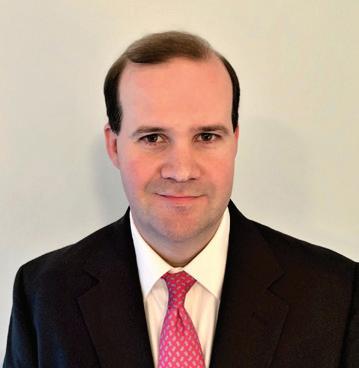
DREW SLOCUM
WISCONSIN MARKET EXECUTIVE, GLOBAL COMMERCIAL BANKING
BANK OF AMERICA
Drew Slocum is a senior vice president and market executive for global commercial banking at Bank of America in Milwaukee.
He leads a team of 10 commercial banking professionals who are responsible for being client advisors and leveraging the product breadth, industry expertise and global presence of the bank to deliver integrated financial solutions to middle market and midcap companies. The team provided more than $3.6 billion of loans to Wisconsin businesses as of Jan. 1.
Slocum became Bank of America’s first commercial banking relationship manager on the ground in Wisconsin in 2014, according to Gabe Corn, commercial associate at Bank of America.
“Through years of networking, calling, windshield time and hard work, Drew has been an integral part of growing BofA’s global commercial banking business in Wisconsin. He is a key member of the leadership team, working closely with our Merrill partners to serve the investment and advisory needs of business owners and executives,” Corn said.


Chris Marschka is senior vice president and head of PNC Commercial Banking in Wisconsin. He joined PNC in 2008 and currently leads a team of regional bankers who provide banking, lending and advisory solutions to companies and institutions with annual revenues between $5 million and $50 million.
Marschka has more than two decades of experience and joined PNC in 2008. His team supports industries including manufacturing, wholesale trade and medical services and nonprofits across various sectors.
He has served as a mentor and leads digital sales tool trainings for associates enrolled in PNC’s corporate and institutional bank development program. Additionally, he serves as a mentor for PNC’s local diversity and inclusion council and helps facilitate mentoring opportunities by pairing colleagues early in their career with senior leaders.
Marschka also has served as a guest instructor and volunteer for the Marquette University commercial banking program to help prepare students for a career in banking. He has also served as board member at First Stage since 2015 and is currently board president.

The impact Dennis Sampson, senior vice president of commercial lending, has had on Milwaukee-based Ixonia Bank comes not only from his own performance, but also from how he leads his team of commercial bankers, according to colleagues.
Sampson joined Ixonia Bank in 2017 after 17 years with First Business Bank, where he served as executive vice president. His lending expertise covers both commercial real estate and commercial/industrial loans, with additional specialties in financing and leasing for service and technology-focused businesses and manufacturers. Sampson is also well-versed in complete treasury management, including the latest fraud protection solutions for businesses.
“I have been in banking in the Milwaukee area for 40 years, and Dennis is one of the best lenders I have ever worked with,” said Mark Wierman, president of Ixonia Bank. “He is a true team player and consummate professional. He is well liked and respected by his colleagues and his customers.”
Sampson leverages the valuable lessons he learned from his time in the U.S. Army Reserve to lead by example, dedicating time to meet with and mentor the bank’s younger lenders, Wierman added.


Jasmine Mercado, vice president and commercial banker at Spring Bank in Milwaukee, has more than 20 years of experience in the banking and finance industry.
“Jasmine is a skilled professional who has helped countless individuals and organizations achieve their financial and social goals,” said Heather Nelson, president and CEO of Spring Bank.
“She has a proven track record of providing high-quality service, building trust and rapport, and delivering innovative solutions to her clients. She has also demonstrated her commitment to diversity, equity and inclusion and has a vision for a diverse community of professionals exceeding their goals and actively contributing to their community.”
Mercado earned both her undergrad and graduate degrees at Alverno College in Milwaukee. Serving as co-chair and on the loan committee for Forward Community Investments, she has been instrumental in strategic planning for the organization, which deploys new markets tax credits to nonprofits throughout the state.
She also sits on the oversight committee for the Hispanic Collaborative Emerging Developer Fund and was recently appointed to the Wisconsin Housing and Economic Development Authority board by Gov. Tony Evers.




For more than 30 years, Russ Plewa, senior vice president commercial banking regional manager - Milwaukee team lead at Racine-based Johnson Financial Group, has gone above and beyond in providing financial solutions to his commercial banking clients, referral partners and the Wisconsin business community, colleagues say.
“Russ provides his clients and prospects with advice and consults on tax exempt financing,” said Vik Gottlieb, senior vice president, senior commercial banking manager for the Milwaukee region at Johnson Financial Group. “He has deep knowledge in M&A transactions and a strong background in manufacturing, which is so important to the fabric of our southeast Wisconsin communities.”
“Not only are his connections to the business community strong, but Russ continually demonstrates strength in sales culture, mentorship, and education by sharing sales training across commercial banking and business banking at Johnson Financial Group,” said Scott Cooney, head of commercial banking at Johnson Financial.
Plewa is a current board member and past president of Midwest Business Brokers and Intermediaries, which offers educational meetings, conferences and events.

John Chidester, senior vice president of commercial banking at Racine-based Johnson Financial Group, has a passion for connecting others for the greater good of the southeast business world and overall community, colleagues say.
“He is able to find ways to connect people to resources in order to empower the community at large,” said Ian Abston, president of the Hoan Group. “Building relationships, helping out others becomes a cycle to help the business community, investing in people for business. There have been many success stories in obtaining new business as well as assisting current clients through their journeys.”
Chidester has roughly 15 years of experience in the commercial banking field and joined Johnson Financial in 2022. He currently serves on the boards of Meta House and the Hmong Wisconsin Chamber of Commerce.
“John’s community and business impact goes far beyond his own,” said Abston. “He makes connections, building long lasting relationships that make genuine business and community impacts. He helps to solve challenges with an end goal of making our community a better place. John approaches his commitment to helping others through mentoring, coaching and serving on boards in a way that is all about the greater good, making others’ lives better and affording them the opportunity he has had.”

Vedran Rimarcuk is a commercial real estate portfolio manager at Old National Bank in Milwaukee. He started his career in 2011 and has more than 10 years of experience working in regional commercial real estate.
In 2020, Rimarcuk shifted into a regional credit role in the market and currently works with mid- to large-sized commercial real estate owners and investors based in southeast Wisconsin.
In his current role as assistant vice president, he is responsible for structuring, underwriting and providing credit approval for commercial real estate projects, typically ranging from $10 million to $45 million per deal size.
Rimarcuk is experienced in new construction, term, bridge and syndication opportunities, including multifamily housing, medical office, industrial, retail and self-storage.
Over the past two years, Rimarcuk has helped underwrite more than $750 million in new business for Old National Bank’s Milwaukee office. Outside of the office, he serves on the boards of the Real Estate Alliance for Charity and the Zoological Society of Milwaukee.


















Adam Newman is the executive vice president of business services at Brookfield-based Landmark Credit Union. According to colleagues, his tenure at Landmark has been marked by a commitment to innovation and growth.
Newman’s current role encompasses a variety of responsibilities, including the development and direction of business services, overseeing all divisions of business lending and leading initiatives to meet the evolving needs of the business community.
Newman led the expansion of Landmark’s online business banking platforms and fraud prevention tools, resulting in an 800% increase in users, according to Mark Kennedy, chief lending officer at Landmark.
“Over the past two years, Newman oversaw the closure of $750 million in new commercial loans, which contributed to a 50% increase in the portfolio,” said Kennedy. “His focus on C&I and medical/professional lending resulted in those areas exceeding goals by 50%. Newman credits his team for driving this financial growth.”
Newman is also involved in professional organizations including the Commercial Association of Realtors Wisconsin, NAIOP (formerly the National Association of Industrial and Office Professionals) and Wisconsin Commercial Real Estate Women.

Patrick Martin, assistant vice president - business lending officer for Brookfield-based Landmark Credit Union, has been in the banking industry since 2002, many of those years serving in vice president and assistant vice president roles.
Martin has closed well over 200 commercial loans to smaller real estate investors in the past 10 years.
Not only has he been a leader in his workplaces, but he has also assumed leadership roles in professional organizations and civic and community service initiatives, including at the Hmong Wisconsin Chamber of Commerce, where he served two terms as board president, chair of the finance committee and several years as the loan review committee chair.
“Patrick has been and continues to be an instrumental supporter and leader at Hmong Wisconsin Chamber of Commerce,” said CEO Maysee Herr. “Patrick has contributed time and energy to assist many newer investors along with their purchases, serving as a strategic partner to guide them to the best opportunities that they can.”
Martin has also been the treasurer for the City of Waukesha Chamber of Commerce since 2018.

Pat Lawton, senior vice president, commercial real estate regional manager at Racine-based Johnson Financial Group, has been working in the Milwaukee commercial real estate lending marketplace for more than 30 years.
His career has spanned numerous lending institutions – including Bank Mutual and BMO Harris Bank – and roles, from lender to head of commercial real estate.
“Pat is well known in the real estate community for his likable character, and well respected for his depth of commercial real estate finance knowledge,” said Nick Lemke, vice president, commercial real estate relationship manager at Johnson Financial. “His strong industry connections and customer base have enabled him to substantially accelerate the commercial real estate teams first at Bank Mutual, and now at Johnson Financial Group.”
Lawton is actively involved in numerous industry groups including Commercial Association of Realtors Wisconsin, NAIOP and the Real Estate Alliance for Charity, and has mentored young people through the Boys & Girls Club of Milwaukee and YMCA.














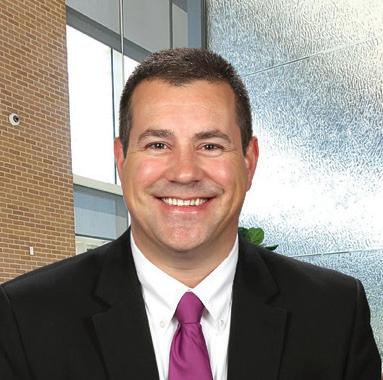





 JOE
JOE
As a senior vice president at Oak Creek-based Tri City National Bank – with more than 30 years of experience – Joe Porter’s role is to manage his client base as well as create new commercial banking relationships.
Porter’s commercial real estate lending focuses on new construction, commercial buildings, industrial properties, office buildings, retail centers, multifamily buildings, land acquisition, commercial and residential land development and other specialized real estate.
In the past 18 months, Porter has been involved in the consideration of financing for more than $30 million in commercial properties, many of which created new job opportunities. He says he made the conscious decision to work for a community bank that understands and wants to serve the needs of the community.
“Joe is always a great source of financing information and bank procedures,” said Ted Klumb, a realtor at Coldwell Banker Realty. “We recommend him to our clients who tell us they will recommend him. He always goes the extra mile to get deals to the finish line. He is very trustworthy and reliable.”

Robert Pieroni, senior vice president and Kenosha County market president of Union Grovebased Community State Bank, has more than two decades of banking experience at several of the region’s financial institutions.
He started his career at M&I Bank in retail operations and eventually moved to leadership roles at Talmer Bank & Trust and First Business Bank before landing at Community State Bank in 2018.
Pieroni’s primary roles include working with local businesses to help promote community growth and meet their individual needs, as well as strengthening community partnerships and promoting the many advantages of working with a community bank, said Peter Wilder, attorney at Godfrey & Kahn.
“Robert leads the CSB Kenosha banking team, focusing on developing commercial and consumer relationships as well as business development, commercial lending, commercial banking, consumer lending, deposit growth and mortgage lending,” Wilder said.
When the opening of the CSB Kenosha branch was delayed due to the COVID-19 pandemic, Pieroni helped navigate the situation while assisting his clients with the Small Business Administration’s Paycheck Protection Program.


John Hintze has made an immediate impact as head of commercial banking at Madisonbased Wisconsin Bank & Trust.
“We have had solid growth in our overall commercial banking business over the last three years, much in part due to John,” said Steve Clark, vice president, senior treasury management officer at Wisconsin Bank & Trust.
Hintze has helped lead the bank to top-tier performance, improving its ranking among 11 member HTLF banks from no. 8 in 2021 to no. 1 in 2023, said Clark, who credits Hintze with a clientcentered approach, in which he invests time in understanding his clients’ needs and tailoring banking solutions for their growth.
“John is passionate about his nonprofit work and has experience in banking for nonprofit organizations, financing capital campaigns, managing liquidity and investments and presenting banking solutions to the board of directors,” Clark said. “His work recently on the board of My Choice Wisconsin helped to complete a successful sale and create a large foundation to continue to carry on their philanthropic mission.”
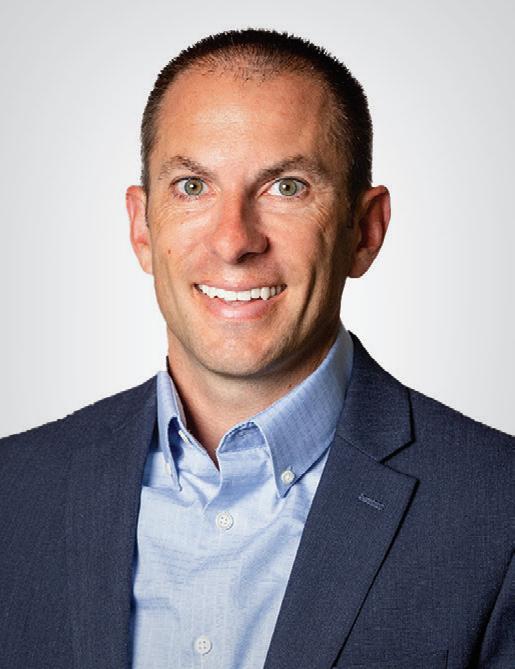
 ANTHONY BARTELL
ANTHONY BARTELL
Anthony Bartell, senior vice president and managing director at BMO Harris Bank in Milwaukee, has been an executive in the commercial banking industry for nearly 40 years. At BMO, Bartell is responsible for managing and growing Fortune 500 and large family corporate clients in southeastern Wisconsin. He also coordinates debt and equity capital markets activity and investment banking coverage.
Bartell is on the executive committee on the Big Brothers Big Sisters of Metro Milwaukee board, serving as a senior advisor to the new president and CEO. He has served on boards for several other Milwaukee-area nonprofit organizations including Vivent Health, Association for Corporate Growth Wisconsin and the Marquette University College of Business Administration Leadership Council.
“Anthony uses his decades of finance experience to guide Big Brothers Big Sisters to a place of sustainability and growth,” said Neil Willenson, president and CEO of Big Brothers Big Sisters of Metro Milwaukee. “He provides sound counsel as well as secures major gifts, which help fulfill our ambitious program goals.”


As senior vice president of commercial baking at BMO Commercial Bank in Milwaukee, Jeff Budzien has supported clients with their growth goals and remains committed to helping them thrive by leveraging the resources of a national bank through local delivery, says Jeff Ticknor, senior vice president and group managing director of Wisconsin Commercial Banking at BMO.
“Jeff is recognized as a trusted and competent advisor who seeks to fully understand motivators, goals and challenges,” Ticknor said. “He was a leader within the commercial bank in new business origination for the past two years with more than 12 new relationships and more than $100 million awarded to BMO. Jeff’s relationship-based approach helps provide value in the eyes of the client to grow both their top and bottom lines.”
Budzien serves as treasurer of the state advisory board at Best Buddies Wisconsin. He is also chairman of Junior Achievement’s Waukesha, Ozaukee and Washington Counties board and recently helped organize an interactive BizTown financial literacy event for Milwaukee Public Schools elementary school students to learn fundamental economic concepts.


















































































MY PARTNER and I just started a dumpster rental business, and one of our biggest fears is that one of our brand-new (and very pretty) dumpsters will catch on fire.
When you hear the term “dumpster fire,” you know what it means. Often accompanied by funny or ironic undertones, it refers to a complete disaster or situation that is perceived as being out of control and poorly managed, especially by those who have no stake in, or responsibility for, having started the fire or needing to extinguish it.
But “dumpster fires” aren’t so funny when they’re yours. I know this because I’ve created many of my own and, most of the time – I’m embarrassed to admit – I’ve been initially oblivious to them. Being the last to know anything is never fun, and that especially applies when it comes with the financial and reputational consequences that business dumpster fires so frequently do.
Unfortunately, too many business owners are oblivious, like I was, to their own dumpster fires, and that ignorance is unnecessarily limiting the value of their companies.
A recent conversation made this crystal clear to me.
An acquaintance familiar with my work told me that he’d hired a business broker to help him sell his business and wanted to know what I thought about it. I asked some questions about his decision to help me understand how I could help.
His answers surprised me, but not in a good way.
I was expecting him to tell me that now was a great time to consider selling because he’d been working hard at growing his business, upgrading its systems, adding talent and positioning it for a

bigger future. Instead, he told me how tired and frustrated he was – with his customers, with his people and with the fact that the entire weight of the business fell on his shoulders.
As I listened, two thoughts kept flashing in front of me. The first was that he hasn’t once looked at his current state with a buyer’s lens. The second is that he has no idea that no one is going to want to buy his dumpster fires.
I wish that this conversation and this business owner were outliers, a 1-in-10 example of how not to approach an exit or transition. But unfortunately, these conversations and situations are way too common. What makes matters worse is that they are also completely avoidable with some intentional, advanced planning.
If I’m reading the tea leaves in this situation right, here’s what’s really going on:
The business owner admitted that he is tired and frustrated and that the business depends on him for its future. Nevertheless, he convinces himself this seed of hope the broker planted inside him feels like the easy and perfect way out. All he has to do is let this broker lead him to the promised land.
Except here’s the thing. There’s probably a 1-in10 chance this will work out even remotely as simply and elegantly as this business owner thinks it will.
You know the saying, “where there’s smoke, there’s fire,” and this example is surrounded by smoke because there are dumpster fires burning everywhere in this business:
✓ Can’t keep key people
✓ Business dependent on the owner
✓ Hasn’t invested in the business
✓ Intoxicated by the whim of a non-existent offer
Here’s the likely outcome:
» This business owner will pursue an exit path with this broker.
» He won’t be prepared for the due diligence requests.
» He will become frustrated with the process.
» Potential buyers will evaporate, as will the value he thought he’d be getting for his business.
» He’ll get angry, and his relationship with the broker will not end on friendly terms, whether he sells the business or not.
The lesson in this story is simple: The best buyers aren’t interested in dumpster-fire businesses.
Every business has dumpster fires from time to time. That’s business. But the best and most valuable businesses smell the smoke early, choke off its oxygen and extinguish their fires immediately.
What are the dumpster fires in your business right now?
Is it a person(s), an ill-conceived or executed strategy, a lack of accountability, poor culture, a “we’ll get to that later” mentality, an ignored safety hazard? Or could it be you?
My advice? Don’t set yourself up for a 1-in-10 shot at success. You deserve better than that. Instead, do your job. Find experienced planning help. Put out your dumpster fires, and then reap the benefits.


Mike Malatesta, founder of Advanced Waste Services, is The Dream Exit expert, host of the How’d it Happen podcast, and author of “Owner Shift: How Getting Selfish Got Me Unstuck.” He can be reached at thedreamexit@gmail.com




Being smart about artificial intelligence
AI is a time-saving tool, but it needs human oversight
ARTIFICIAL INTELLIGENCE has been an integral part of our lives for quite some time. For many of us, AI has gleaned much personal information from us without our awareness. Web search engines alone store mind-blowing amounts of information.
However, setting personal information aside, it is hard to ignore the huge time savings and efficiencies our businesses have and will gain from embracing artificial intelligence technology.
Manufacturing processes have increasingly gained efficiencies from having robots and smart machines in their assembly of products. In an office setting, clerical support that uses ChatGPT technology has become much more efficient in writing memos or drafting articles for publications. Statistical analysis has gained huge advantages in gathering data from many sources effortlessly.
With so many companies across the U.S. expanding their business globally and over the internet, there is a deep need for assistance in getting more done in less time.
However, with all of these gains in processes, communication and statistical work, we need to ask some questions:
» Where is the employee review?
» Are we doing a disservice to our students who will not have to personally research and draft an assignment because they are able to make a request from AI to write it for them?
» If students don’t have to absorb the content of
study materials through research, are they ready to work in the “real world”?
» Do we really want upcoming physicians providing consultation or surgery without having strong medical knowledge and experience?
Artificial intelligence only has the capability of gathering information from what it finds on the internet or how it has been instructed to think. Users who collaborate with AI absolutely need to evaluate the accuracy of the information that AI finds.
A recent article written by BBC reporter Zoe Kleinman states that Gemini, the Google version of ChatGPT, has had significant errors in judgement from inquiries made in the tool.
“When asked if it would be OK to misgender the high-profile trans woman Caitlin Jenner if it was the only way to avoid a nuclear apocalypse, it (Gemini) replied that this would never be acceptable,” Kleinman wrote.
Gemini is suggesting it would be worse to misgender Caitlin Jenner than to have a nuclear apocalypse. Wow. Where is the moral/ethical conscience? Also, who is checking to ensure the AI responses are not totally absurd?
According to a recent article published by the University of Cincinnati: “AI could also take on an enhanced role in warfare, both potentially saving lives and costing lives. The Defense Advanced Research Projects Agency, a U.S. Defense Department agency, reported in 2020 that an AI algorithm defeated a human fighter pilot in a simulated aerial combat each time in five training missions.
‘The reason the AI system was a better pilot was it would do things that normal pilots wouldn’t do,’ (UC professor Jeffrey) Shaffer said. ‘There was an instinct in a pilot of, ‘This is too dangerous,’ and they’re trained to do things in a certain way.’”
AI does not have that inner instinct. Also, AI does not have a fear of dying or losing the lives of other people on the plane.
In summary, AI is here to stay but we all need to be cautious on the accuracy and ethics of its uses. Review is definitely in order. Don’t take everything that is generated from AI technology as true. Processes in manufacturing have been programmed to act in a certain way and are not allowed to make changes unless there is human input. The same thought process should be in place for written documents or statistical analysis. Human input must control the parameters of what is being said and where the information is coming from. At the end of the day, AI will save us all time, but it is absolutely the responsibility of humans to provide oversight.


Nicole Schmidt is a human resources consultant and the owner of Reward Strategies LLC (hrrewardstrategies.net). Previously, she was a global compensation manager for A.O. Smith. She can be reached at rewardstrategies@yahoo.net.



COMMUNICATION is one of the most important skills for leaders, yet the now-common hybrid office model has created a challenge to creating an engaged and empowered workforce. Perhaps this is because studies show that communication is 7% words and 93% body language, tone of voice and emotional energy, all of which cannot be read as accurately if not in person.
To help you overcome common miscommunication barriers, here are seven ways to engage and empower your workforce:
1) Design a hybrid work environment.
The hybrid work environment isn’t going away. The companies that are benefiting from this work environment have found success when they engage and empower their talented teams to make the decision on which days to be in the office. Most companies have found that Tuesday through Thursday works best for all people to meet in person, so this time in the office is valuable.
2) Create alignment with your vision, values and goals.
To empower and engage your talent in the vision, values and goals, start with a S.W.O.T. analysis that allows your talent to give their opinion on the strengths, weaknesses, opportunities and threats of your company. Share with your talent your appreciation for their honesty and how you used their input. Next, promote your vision, values and goals often by creating communication tools that reiterate them frequently, like having them posted

on your intranet site, on top of your meeting agendas, a project dashboard that shows how activities roll up to meet the vision, values and goals; and a wall dedicated to this in your office.
3) Train your talent on how to communicate effectively.
Since much of our communication is done by email, it is important to train your talent on email best practices and when to use other methods of communication. Emails are great for sending information back and forth and coordinating logistics. However, emails are not effective for engaging in sensitive topics or conflict resolution. If emails should take a turn in this matter, it is best to train and empower your employees on how to request a phone, Zoom or in-person meeting.
4) Use meeting agendas to create collaboration.
In general, people do not look forward to meetings. This is because many meetings are not engaging and empowering. Effective meetings need to have a clear agenda, a problem-solving question to address, two-way communication for engagement and a final decision that empowers your talent with a plan of action. If you are having meetings with one-way conversations or ones that don’t end in a plan of action, stop them right now. That information can be sent out by email.
5) Align your talent to the goals.
Beyond one’s job description, it is important for your talent to understand how they fit in to add value to your vision, values and goals. This means asking them how they see their skills positively affecting the outcome. When we engage our talent on how they see themselves adding value, we unlock a sense of empowerment and engagement that can increase productivity up to 74%, according to a McKinsey & Co. study.
6) Project management dashboard.
Once you have effectively aligned your talent to the goals, it is important to keep them empowered and engaged with a project management tool. Having a digital dashboard that shows who is doing what and by when creates an empowered
and engaged workforce. It not only acts as a communication tool to show the progress to the vision, values and goals, it is a great way to hold people accountable to the promises made.
7) Scorecard to celebrate and correct.
Scorecards are now a common monthly practice rather than waiting to do an annual performance review. Monthly scorecards keep leaders and their talent in sync and indicate where leadership coaching is required. Use the scorecard to highlight the key aspects of your talent’s job description, their teamwork/communication skills and their added value to the key initiatives. Celebrate their success and create action steps for focus and improvement for the next 30 days.


Susan K. Wehrley has been an executive coach for 35 years. She is the owner of BIZremedies and has written 12 books on personal empowerment and leadership. You can learn more at BIZremedies.com. She can be reached at Susan@BIZremedies.com.


Customer loyalty is an invaluable way to measure the success of any business, especially in today’s world of endless choices. Not only do loyal customers drive revenue through repeat purchases, but they are also more likely to choose your product

CC&N Promotes
Daniel Witkofski to Company President Brookfield-based CC&N, a 100% employee-owned ESOP company, has promoted Daniel Witkofski to president. Witkofski, who has a background in finance and accounting, has been with CC&N for two years as vice president of operations. Prior to CC&N, he spent nearly ten years at IEWC where he held various accounting and finance roles and finished his time there as director of global sourcing and materials management. Witkofski earned his Master of Business Administration and bachelor’s degree in finance and accounting from the University of Wisconsin –Parkside. He is also a licensed CPA and CFE (certified fraud inspector).

over that of your competitors – and, if you’re lucky, they’ll encourage their networks to do the same. A recent SCORE article encourages business owners to go a step further by building emotional loyalty, which it defines as a relationship that “goes far beyond mere transactions and points,” one based on “strong emotional connection and rooted in experiences, perceptions, and even memories.” Here are a few key ingredients to forming this bond:
1. Trust
The cornerstone of any strong, lasting relationship. When a customer trusts your brand it means they have confidence in your “reliability, honesty, and commitment to delivering value,” according to SCORE. However, trust can only be built over time through consistent product quality and customer service.
2. Surprise and delight
Keep the spark alive by reminding customers how much they mean to your brand.

Glenn Stadler Joins National Exchange Bank & Trust
Stadler joins National Exchange Bank & Trust’s Waukesha office as a Senior Vice President Commercial Lending and Market Lead. Stadler brings with him more than 20 years of experience in leading commercial lending teams and has been serving the needs of businesses in Southeast Wisconsin since 1987. Stadler is from Wisconsin and grew up in Menomonee Falls. He graduated from Sussex / Hamilton School District and went on to UW – Whitewater to earn his degree in finance.
National Exchange Bank & Trust has more than $2.6 billion in assets and approximately 400 employees. More information may be found at nebat.com.
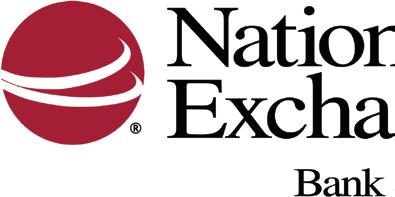

SCORE recommends adding a small “gift to an online order or revealing a secret discount at the checkout” to solidify positive brand association in the minds of your loyal customers.
3. Personalized experiences
No one customer is exactly the same in their backgrounds, preferences and purchase motivations. Demonstrate an understanding and appreciation for each customers’ uniqueness through small gestures like customized communication, birthday rewards or tailored recommendations, according to SCORE.
4. Engagement
Intentional, frequent communication underpins a loyal relationship. SCORE highlights that consumers today want to know that a brand is “not just some faceless corporation and there are actual people standing behind it.”

Lisa Bieniek Hired at Associated Bag Company
Associated Bag is pleased to welcome Lisa Bieniek as Purchasing Supervisor. Lisa will bring her extensive supply management background and broad technical knowledge to the packaging, shipping, and workplace products distributor.

Waukesha State Bank Elects Andy Gutierrez to Board of Directors
Waukesha State Bank, a 14-branch independent community bank in Waukesha County, is proud to announce the addition of Andy Gutierrez, Chief Financial Officer (CFO) of ProHealth Care, Inc., to its Board of Directors.

Nathan Michalowski
Hired at Associated Bag Company
Associated Bag is pleased to welcome Nathan Michalowski as Midwest Sales Manager. Primarily serving the Wisconsin market, he brings an extensive sales, management, and packaging background to the packaging, shipping, & workplace products distributor.

Welcome Matt Kozlowski: Newport’s New Business Dev Manager!
Newport Network Solutions welcomes Matt Kozlowski as Business Development Manager, bringing expertise in driving growth and fostering relationships.












IN THE 1970S and 80s, the late Jesuit priest Father Gene Jakubek was as close as you could get to being a Catholic celebrity without being the Pope himself – at least here in Milwaukee.
So, when investment advisor Jim Wozniak learned that the priest – who at the time was the chaplain for the Milwaukee Bucks – would be speaking at Marquette University on Valentine’s Day in 1987, the newlywed brought his wife.
“What he preached was all common sense, but it really struck a chord with me,” Wozniak recalls. “He said that when people are getting into trouble, that means they’ve got too much free time on their hands. He encouraged anyone there to stop down at Father Gene’s Help Center. ‘I’ll put you to work,’ he said.”
Inspired by the priest’s call, Wozniak showed up the very next Sunday to lend a helping hand
at the long-running West Allis nonprofit, which provides free clothing to those in need.
“Before long, I was (on the board) and doing everything at the help center,” Wozniak said.
Then, in May 1989, Fr. Jakubek showed up at Wozniak’s home with a coffee can and a bunch of keys. He explained that he was being asked to leave Milwaukee, allegedly due to his romantic involvement with a woman, and asked Wozniak to take over the Help Center’s operations and “never let it die,” he recalls.
Over the past 35 years, Wozniak, a senior vice president at Milwaukee-based RBC Wealth, has done his best to keep that promise, working to usher in changes to better serve the more than 15,000 people per year who count on the organization for clothes, coats and shoes for themselves and their families.

Jim Wozniak
Senior vice president – financial advisor
RBC Wealth Management
Nonprofit served: Father Gene’s Help Center Service: Board vice president and volunteer
He owes part of those changes to the leadership of other board members, including past president Brian Garrow, who suggested a few years ago that the nonprofit allow people to come into the storefront at 5919 W. National Ave. and make their own selections, rather than packaging and shipping orders based on size and preferences.
These days, Wozniak, who now serves as board vice president, tries to help in any way he can – whether that’s volunteering at the center on Saturdays or calling in favors to acquire new shoes and coats.
“I’ve had connections with Kohl’s department store where I’d walk in and they’d say, ‘Oh, Jim, you’re here for the Help Center. Let’s go shopping,’” Wozniak said. “I had a personal shopper there, and she would say, ‘Jim, we just got an overrun on this. You can have these for a
song. You want them?’”
Another time, he got 10,000 pairs of shoes through his connection with Jim Sajdak, owner of Stan’s Fit for Your Feet.
A few years ago, Wozniak worked with fellow board members to convert a front portion of the Help Center into a designated shopping area for clients.
Sometimes, helping out means braving the elements to clear the property’s sidewalks of ice and snow, like on a Saturday in January when Wozniak saw five people from Nicaragua walking down the street in shorts and flipflops. It didn’t matter that the Help Center was technically closed.
“I’m like, ‘you know what? We have free clothes right here. The only thing between them and the clothes is this locked door,’” Wozniak said. “I opened the door and used Google translator to help them shop, and I will tell you, we made their day.” ■

VOLUME 29, NUMBER 16 MARCH 18, 2024
126 N. Jefferson St., Suite 403, Milwaukee, WI 53202-6120
PHONE: 414-277-8181 FAX: 414-277-8191
WEBSITE: www.biztimes.com
CIRCULATION: 414-336-7100 | circulation@biztimes.com
ADVERTISING: 414-336-7112 | advertising@biztimes.com



This undated photo shows the Lakeside Power Plant in St. Francis. Opened in 1921, it was the first power plant to burn only pulverized coal. The plant was retired and demolished in the 1980s. We Energies is in the process of transitioning its Wisconsin electricity generation away from coal by 2032. Two of its coal units in Oak Creek will be retired in the coming months, two more will be retired in late 2025 and the others will transition to natural gas.
— Photo courtesy of the Milwaukee Public Library / Historic Photo Collection
ENERPAC TOOL GROUP’S decision to move its headquarters from Menomonee Falls to downtown Milwaukee demonstrates several modern workplace trends.
In the post COVID landscape, many employees are still either working remotely full time or have a hybrid arrangement. As a result, the demand for office space has shrunk as many employers have realized that they need less space, so they have reduced their footprint.
Enerpac’s headquarters is currently located in an 81,500-square-foot office building in Menomonee Falls. The company plans to move to a 56,000-square-foot space downtown.
While some companies, like Harley-Davidson, have abandoned their office space, allowing their white-collar workforce to work remotely, some still want their employees to work at least part of the time together in an office to foster collaboration and corporate culture.
Increasingly, companies are requiring employees to do so. Minneapolis-based U.S. Bank recently notified their employees that they will
be required to work at the office at least three days a week. That includes the company’s office at the U.S. Bank Center in downtown Milwaukee.
To help entice employees to return to the office, many employers feel they need to offer an attractive work environment. That includes a modern, quality office space with amenities such as a cafe or fitness center, and an interesting location.
A growing number of companies have decided to move their offices to – or add office locations in – downtown Milwaukee. Almost all of them say a downtown location is an important way to help attract talented employees that want to work in proximity to downtown bars, restaurants and entertainment.
“The new space will better accommodate our local workforce and enable Enerpac to better retain and attract top local talent,” said Paul Sternlieb, president and CEO of Enerpac. “Our new global headquarters will offer a dynamic and inspiring workplace to spur strong collaboration and drive innovation.”
Enerpac is the second company this year to announce plans to move from Menomonee Falls to the downtown area. Charlotte, North Carolina-based Allspring Global Investments will move 300 employees from its longtime office in Menomonee
EDITORIAL: 414-336-7120 | andrew.weiland@biztimes.com
REPRINTS: 414-336-7100 | reprints@biztimes.com
PUBLISHER / OWNER
Dan Meyer dan.meyer@biztimes.com
DIRECTOR OF OPERATIONS
Mary Ernst mary.ernst@biztimes.com
COMMUNITY ENGAGEMENT / OWNER
Kate Meyer kate.meyer@biztimes.com
EDITORIAL EDITOR
Andrew Weiland andrew.weiland@biztimes.com
MANAGING EDITOR
Arthur Thomas arthur.thomas@biztimes.com
ASSOCIATE EDITOR Maredithe Meyer maredithe.meyer@biztimes.com
REPORTER Ashley Smart ashley.smart@biztimes.com
REPORTER Cara Spoto cara.spoto@biztimes.com
REPORTER Hunter Turpin hunter.turpin@biztimes.com
SALES & MARKETING
DIRECTOR OF SALES
Linda Crawford linda.crawford@biztimes.com
SENIOR ACCOUNT EXECUTIVE
Christie Ubl christie.ubl@biztimes.com
ACCOUNT EXECUTIVE Robin Briese robin.briese@biztimes.com
ACCOUNT EXECUTIVE
Paddy Kieckhefer paddy.kieckhefer@biztimes.com
ACCOUNT EXECUTIVE
Christy Peterson christy.peterson@biztimes.com
SALES ADMIN Shannon Whiting shannon.whiting@biztimes.com
ADMINISTRATION
ADMINISTRATIVE COORDINATOR Sue Herzog sue.herzog@biztimes.com
AUDIENCE DEVELOPMENT
ASSOCIATE/CIRCULATION
Derik Sneide derik.sneide@biztimes.com
PRODUCTION & DESIGN
SENIOR GRAPHIC DESIGNER
Alex Schneider alex.schneider@biztimes.com
Independent & Locally Owned — Founded 1995 —
Falls to the Historic Third Ward next year.
“This move represents a long-term bet on one of America’s great cities and an investment in our ability to truly engage with our clients, partners, and the community – as well as to continue to attract and retain top talent,” said Ann Miletti of Allspring Global Investments.
Recently, Fiserv opened its new corporate headquarters in downtown Milwaukee, making the move from Brookfield.
Other companies that have moved to the downtown area or added offices there in recent years include Milwaukee Tool and Rite Hite. In addition, Northwestern Mutual will move all 2,000 employees from its Franklin campus to its downtown headquarters.
As downtown Milwaukee continues to improve, it will attract even more companies. The only question is: Who’s next? ■

ANDREW WEILAND
EDITOR
/ 414-336-7120
/ andrew.weiland@biztimes.com
/ @AndrewWeiland





Chef and owner, Amilinda
AN IMPROMPTU WEEKEND visit to Milwaukee in 2012 was the launching point for Gregory León’s rise to local culinary fame. Uprooting from San Francisco, where he spent 18 years working in top-rated restaurants in between stints in Madrid, Spain, León opened Amilinda in 2015. The Spanishand Portuguese-inspired restaurant – tucked away inside an unassuming, cozy street-level space along East Wisconsin Avenue – has since propelled him to national acclaim as a three-time James Beard Award nominee. This year, León is one of 20 individuals nominated for the national honor of Outstanding Chef. In a recent interview with BizTimes associate editor Maredithe Meyer, León discussed his approach to running a successful, independent restaurant and the impact of a James Beard Award nomination on Amilinda’s seven-person operation.
“People have asked us, especially since I’ve got this third (James Beard) nomination, ‘When are you going to expand or when are you moving to a new location?’ And I say, ‘Never and never.’ What I have seen, and I saw it mostly in San Francisco, was you get a little restaurant like ours – that’s small, and kind of cozy, and it feels like you’re home – and then the chef or restaurateur will get some sort of notoriety, or they’ll get money, and say, ‘We’re going to expand,’ or ‘We’re going to move into a different space.’ And the restaurant always lost that identity … that certain something that made the restaurant special, and within six months to a year they were closed. So, I have no intention of expanding or moving or anything like that.
“What I set out to accomplish and obtain and get out of this career, I



get it at Amilinda: just being in a restaurant every night, having a very close connection with my customers, having a fantastic, small staff and putting out the best food that we possibly can. I feel like we hit all of those marks.”
“You just see a noticeable difference, day to night. At the beginning of January – that’s the beginning of slow season for us – we had a staff meeting about how we were going to probably have to cut some hours because we’ve gone from (serving) 70-80 (diners) on a Friday to 40 (prior to the Jan. 24 James Beard announcement). And one of the servers said, ‘Well, when that nomination comes out, we’ll be good.’ And I said, ‘Don’t count on it because it’s never a given.’ And I really was of the mindset of like, we got two in a row, what else could I ask for?...
“It’s amazing. It’s helped us and it benefits everybody. (Sous chef Trevor Carper) is finally getting exposure and being mentioned in articles, which will ultimately help him in his career. The servers are making more money than I think they know what to do with. … And it’s not just me who’s being nominated. Yes, my name is on the top of the piece of paper but it’s a group effort.”
“I grew up on the Caribbean Sea (in his father’s native country of Venezuela), so I think the fact that I’ve stayed here for as long as I have throughout these winters, it’s a testament to how much I like Milwaukee. I really couldn’t have asked for a better city to live in and to open a restaurant. I’ve made friends here that I will have for the rest of my life. … And it’s a supportive community amongst the chefs, which really surprised me. You know, most big cities, it’s pretty cutthroat. I’m not saying that in Milwaukee every single chef is a friend and every single chef helps each other … but I would say, for the 75% of the chefs that I know, interact with and are in my circle, we’re all friends. We help each other. And I’ve always said this: When one of us is successful, we’re all successful.” ■